“I always want to improve, nothing is ever enough for me.”
Giacomo Ferrara, as we know, never stops. Starting from the TV series “Suburra: Blood on Rome” that he brought on Netflix: a high-quality Italian product become a global phenomenon, moving on to other projects of his, always new, always different, such as the movie “Non mi Uccidere,” or the TV series available on Sky from June 21st “Alfredino: Una Storia Italiana,” and, last but not least, we can’t wait to watch him play the lead character in the movie “Ghiaccio,” which allowed him to open up his eyes even more on the beautiful aspects of his job.
However, nothing is ever enough for Giacomo, he would like to be always moving around, in his creative chaos that collides with his private life, where everything is “tidy” and precise.
We met him between the Medieval walls and Barrocan frescoes of the Torre Pietra castle, a majestic and grandiose building that opened its doors to us and allowed us to create something with him between laughs, improvised dances, and caressed frescoes, but it was also the place for an encounter which made us understand how much respect, humility and dedication Giacomo puts in everything he does, also and especially when it comes to arrosticini.
Giacomo is our June Cover Story, and with him, it was beautiful to understand and rediscover the meaning of courage, and why it is so important to be afraid.
What’s your first cinema memory?
The first movie I’ve ever seen was “Pocahontas” [laughs], it’s the first one I remember watching in my life, though I don’t remember what it made me feel [laughs]. My first movie set, instead, was a huge emotion, I had to figure out the mechanisms of that world I’d dreamed of for so long. After years of acting school, it was amazing to be there, it felt like getting on the rides, and I remember I was way more well-behaved back than compared to how I am today on set, in the sense that I got there, I knew my place, I was afraid of being a bother, of doing something that could bother others, or when they put clothes on me, I used to thank the costume designers a thousand times, and they used to ask me, “Are you all right?”. Anxiety made me do all that.
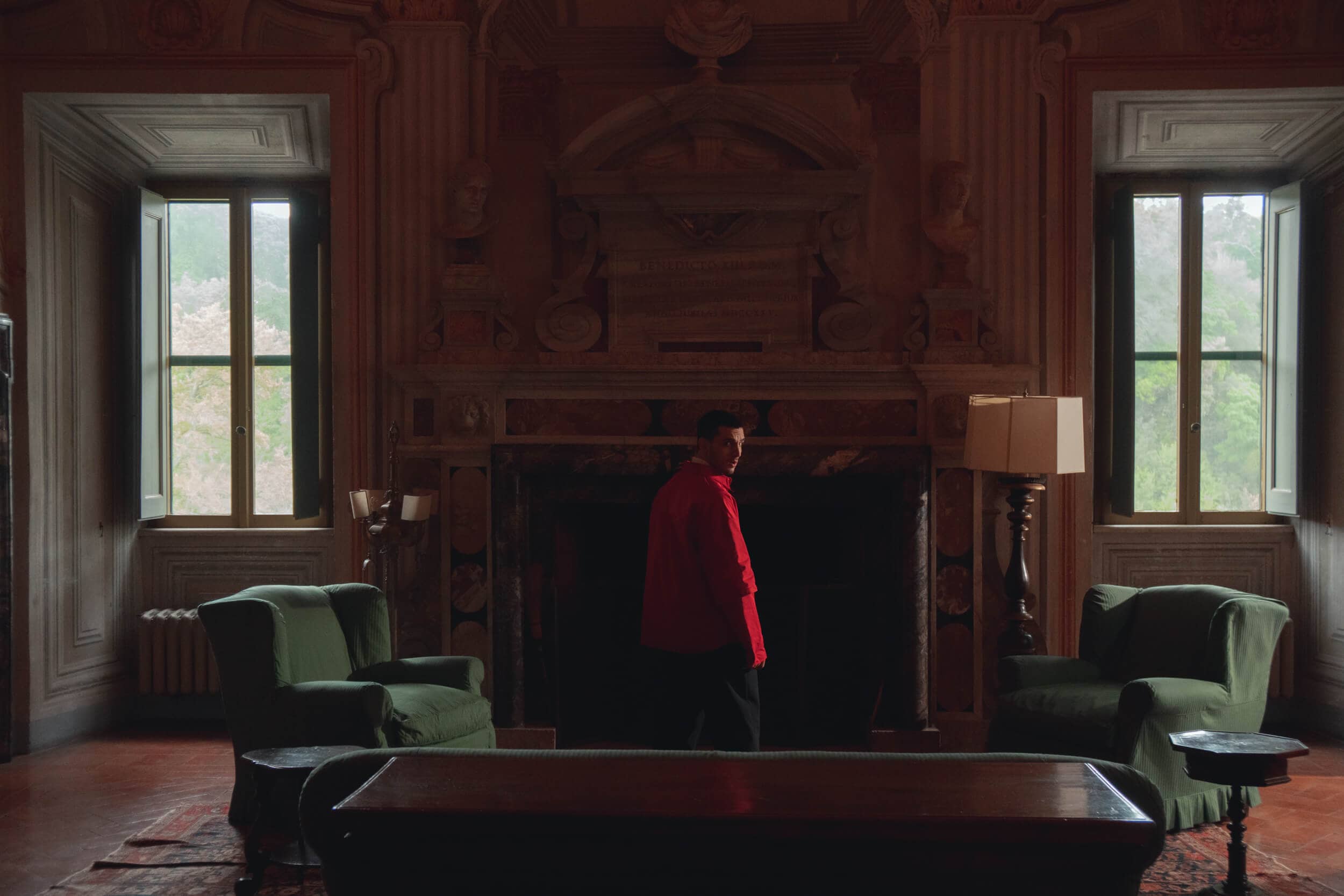
“My first movie set, instead, was a huge emotion, I had to figure out the mechanisms of that world I’d dreamed of for so long.“
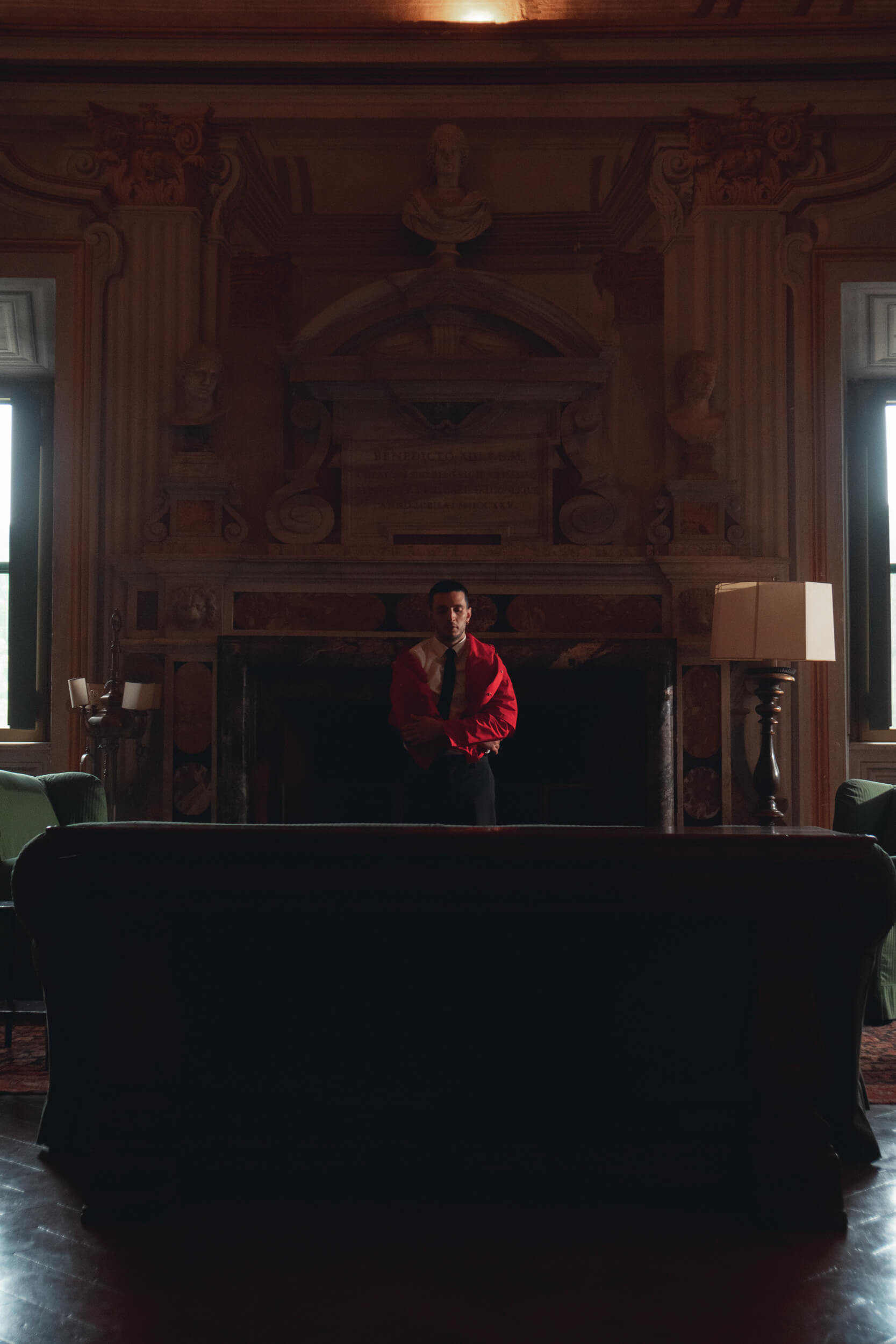
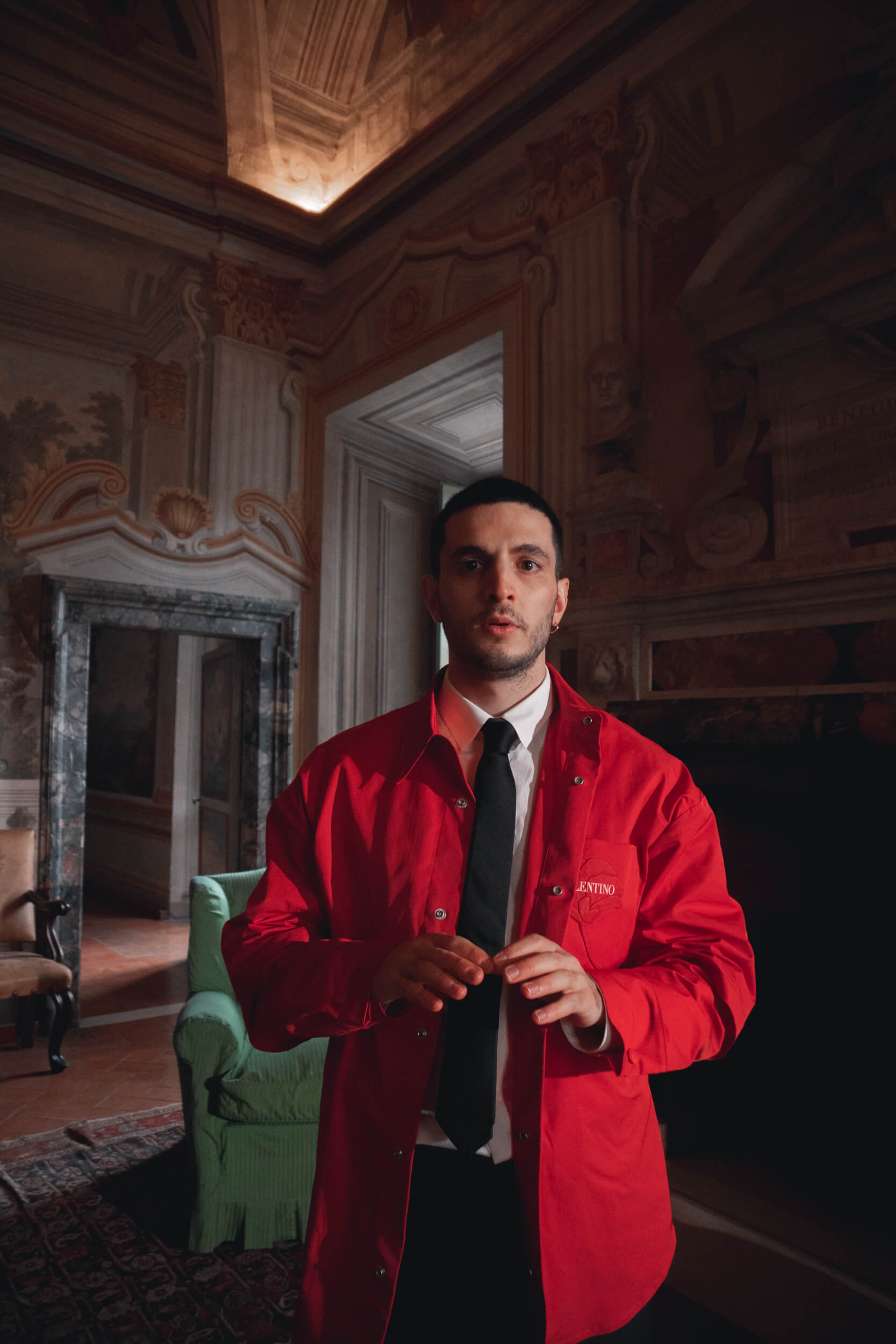
Whenever you’re doing something you’d dreamed of for a long time, something you couldn’t wait to do, it feels like walking on the clouds: you’re super kind to everybody, you thank people a thousand times…
Yes, exactly. Even now, I mean, I’m not an asshole now [laughs], of course, but the more you go on, the more you understand how you’re really the phalanx of cinema, actors are the last part of a hand compared to all that’s behind the scenes. There are top professionals who’ve worked with the best, even on international sets, and some, maybe, have the role to hold the umbrella over your head, whether it’s sunny or rainy, but I never let them do that, it makes me feel totally uncomfortable; however, I find myself thinking about their resume, and that I should be in their place, given the background history they have. It’s always nice.
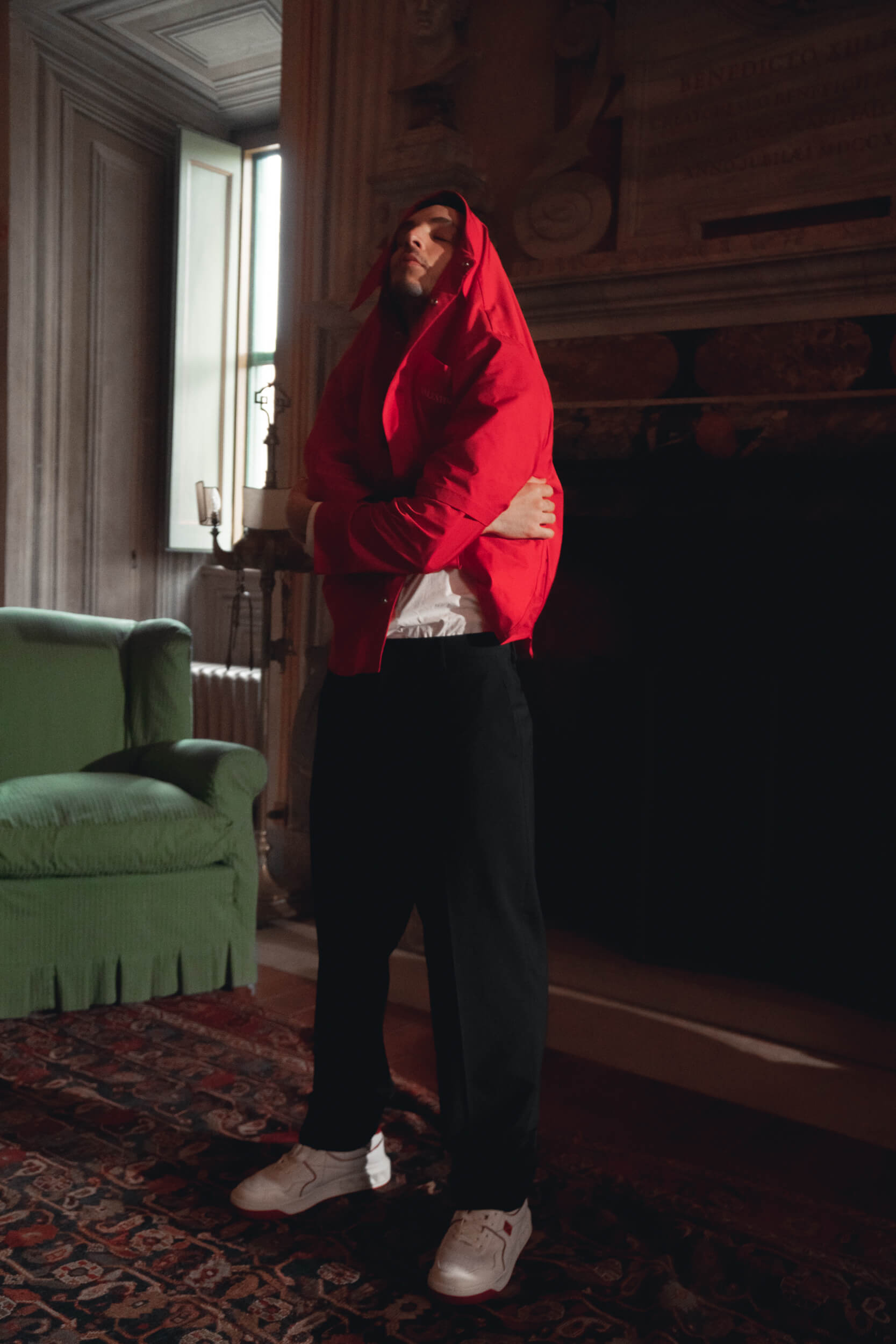
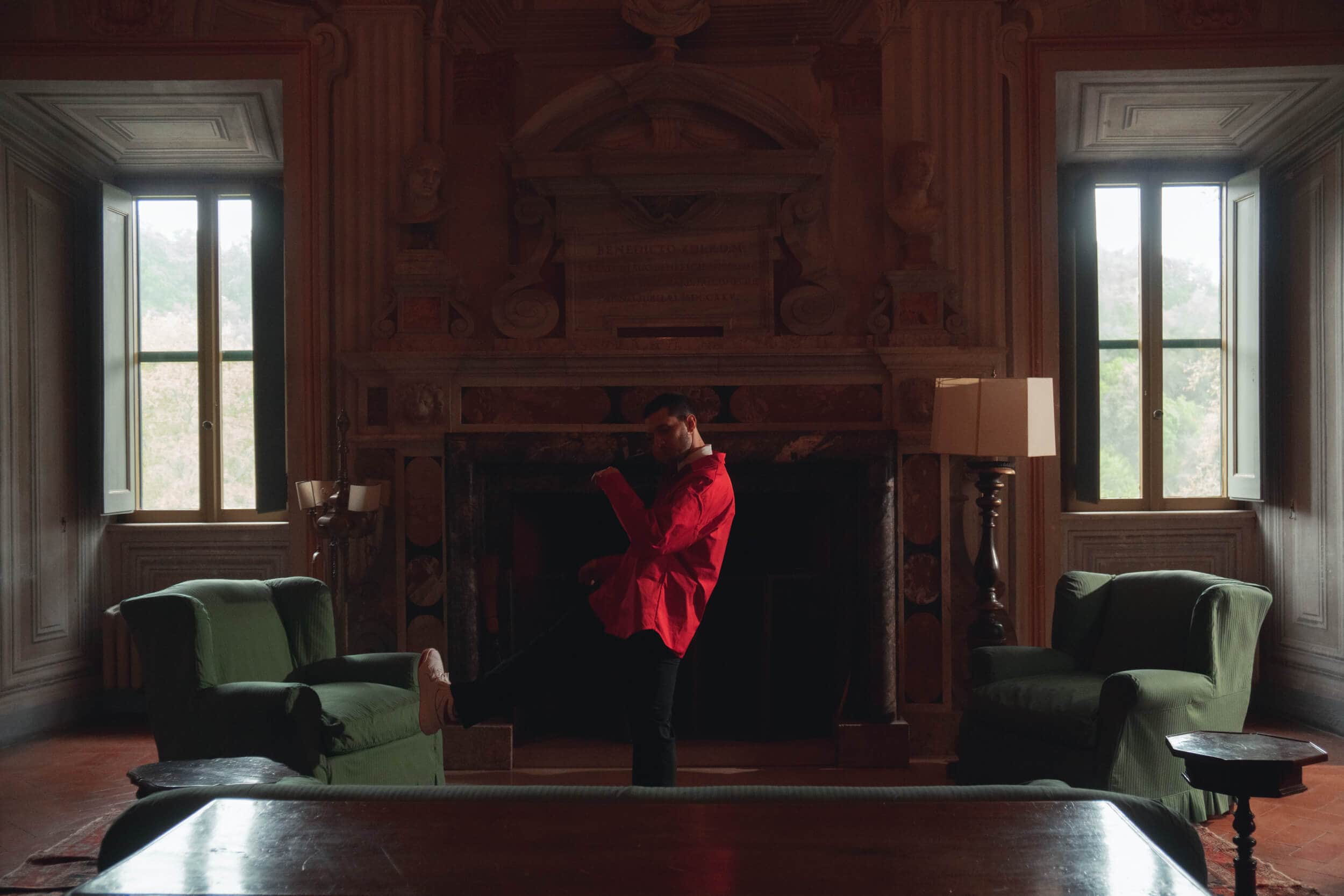
“…actors are the last part of a hand compared to all that’s behind the scenes.“
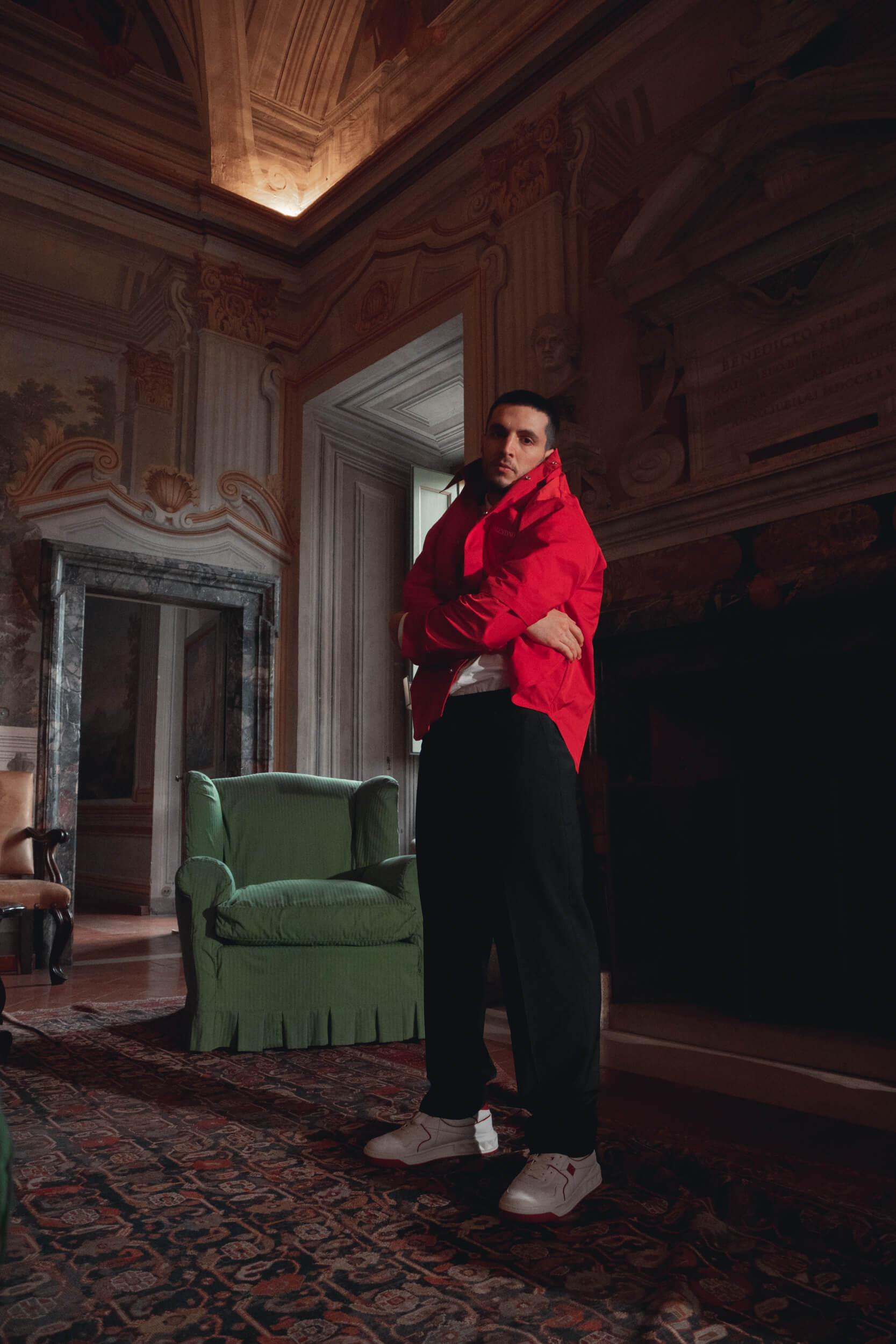
When you read a screenplay, is there any element that makes you think, “yes, I want to do it,” that sparks something in you?
Yes, there could be multiple kinds of roles, but, first and foremost, the part has to be something I feel like I can really work on as an actor, something that involves a real transformation because what I enjoy the most when I do my job, is to be able to empathize with other people’s lives; what matters to me is that the role aims at conveying something important. Then, of course, the story has to be unique, something never done before, or a story that no one has ever told in that way before. You immediately understand whether a screenplay is good or not, especially in Italy, whether the idea behind it is cool, or it’s a story like any other.
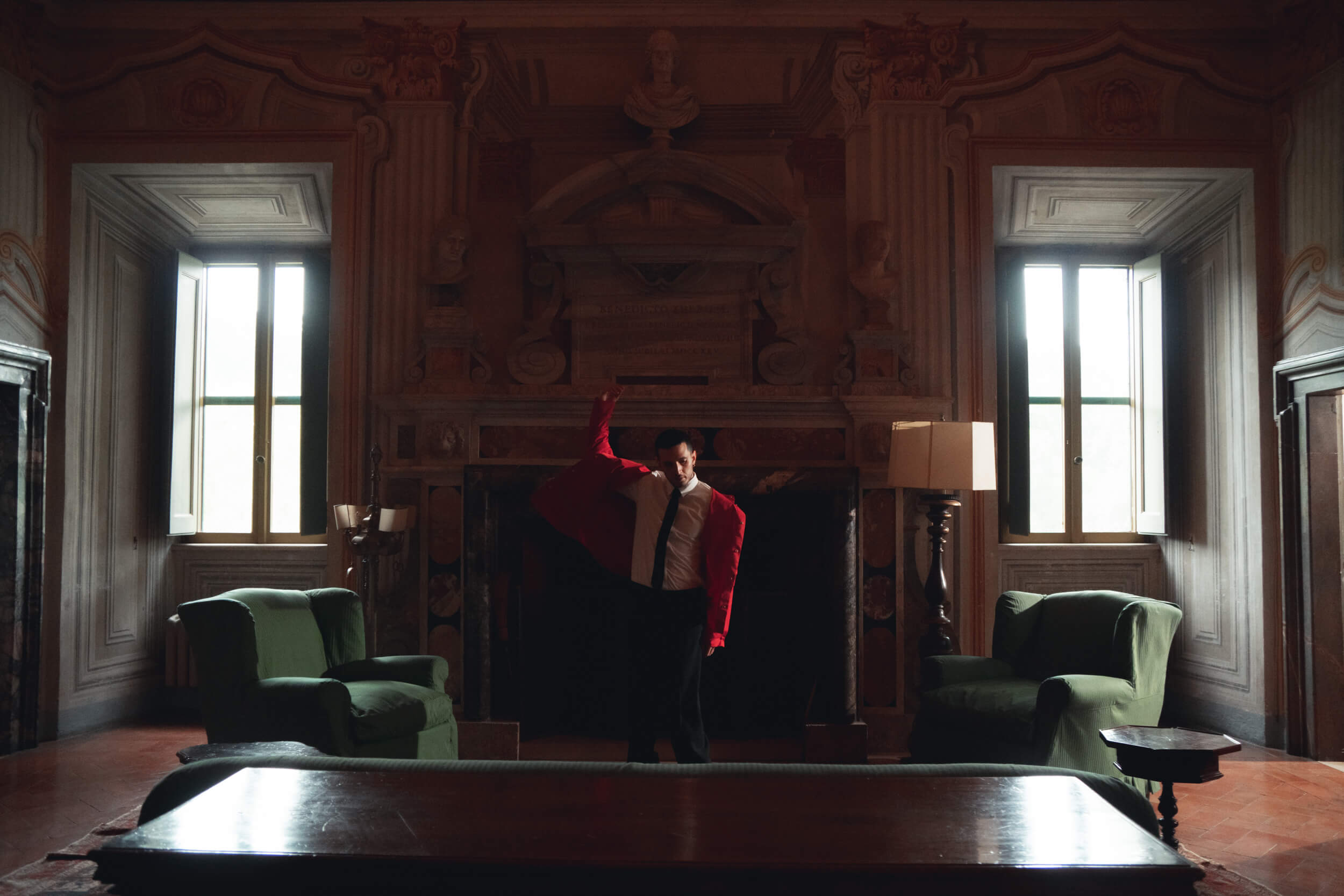
“…because what I enjoy the most when I do my job, is to be able to empathize with other people’s lives; […] You immediately understand whether a screenplay is good or not, especially in Italy, whether the idea behind it is cool, or it’s a story like any other.”
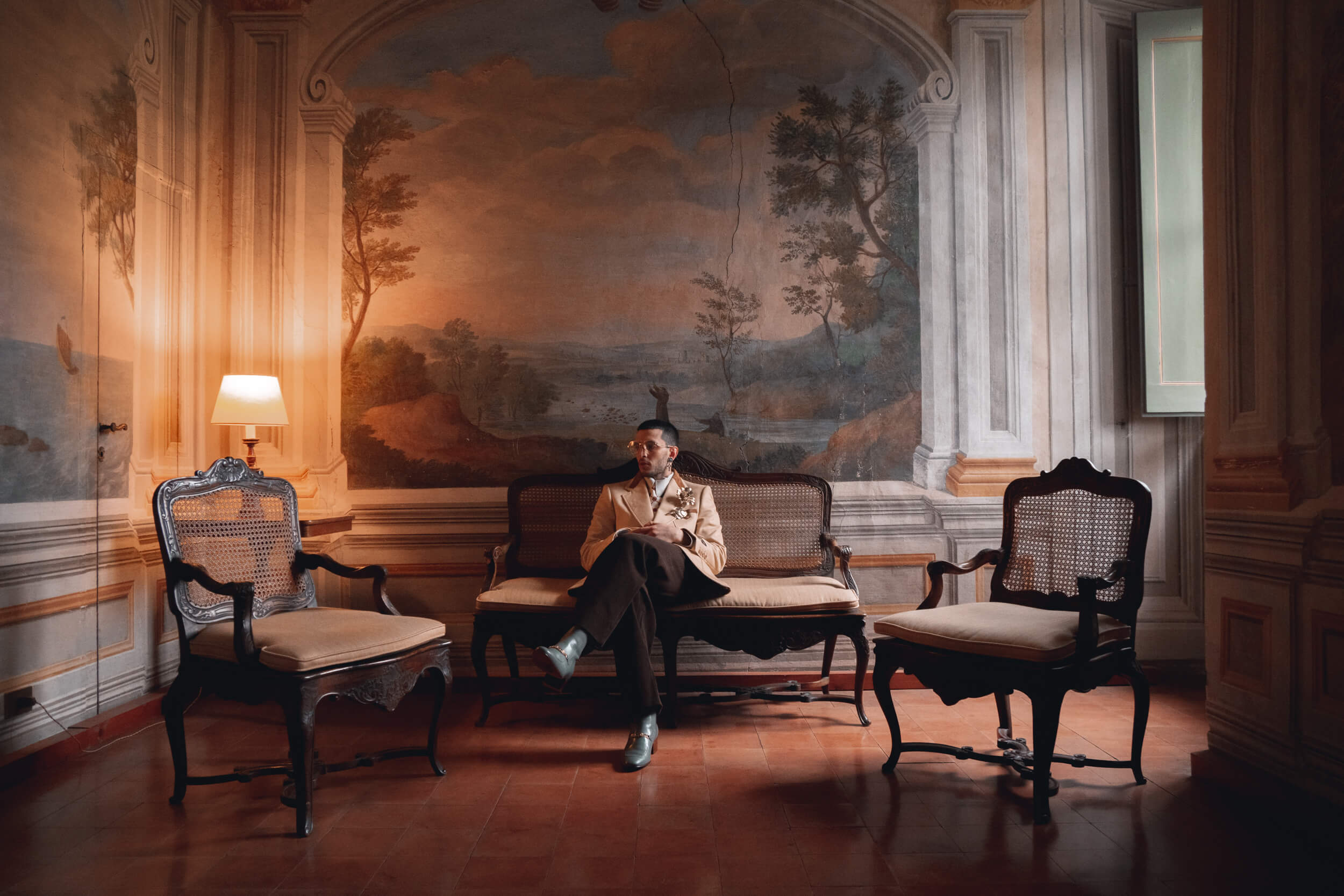
Do you prefer looking for characters who are completely different from you, or do you also enjoy looking for a foothold, something similar to you?
Basically, I’d like to play characters I’ve never played before, all different from each other because, in art, I want to be like a chameleon and turn into anything required by the project, by the role I have to deal with. However, I think that every character tells something about you, it doesn’t matter how extremely different from you or extremely similar to you they are, although even in this last case there will always be some difference, it always tells something more about you. It’s a wonderful job, it’s anthropologic precisely because you get to know the human being, so you get to know yourself better and better. To realize that a character would do something you would never do, already makes you understand something more about yourself, or when a character is dealing with some struggle that’s similar to what you’re struggling with, to see how they get out of it, what happens to them if they do nothing to get out of it, always teaches you something.
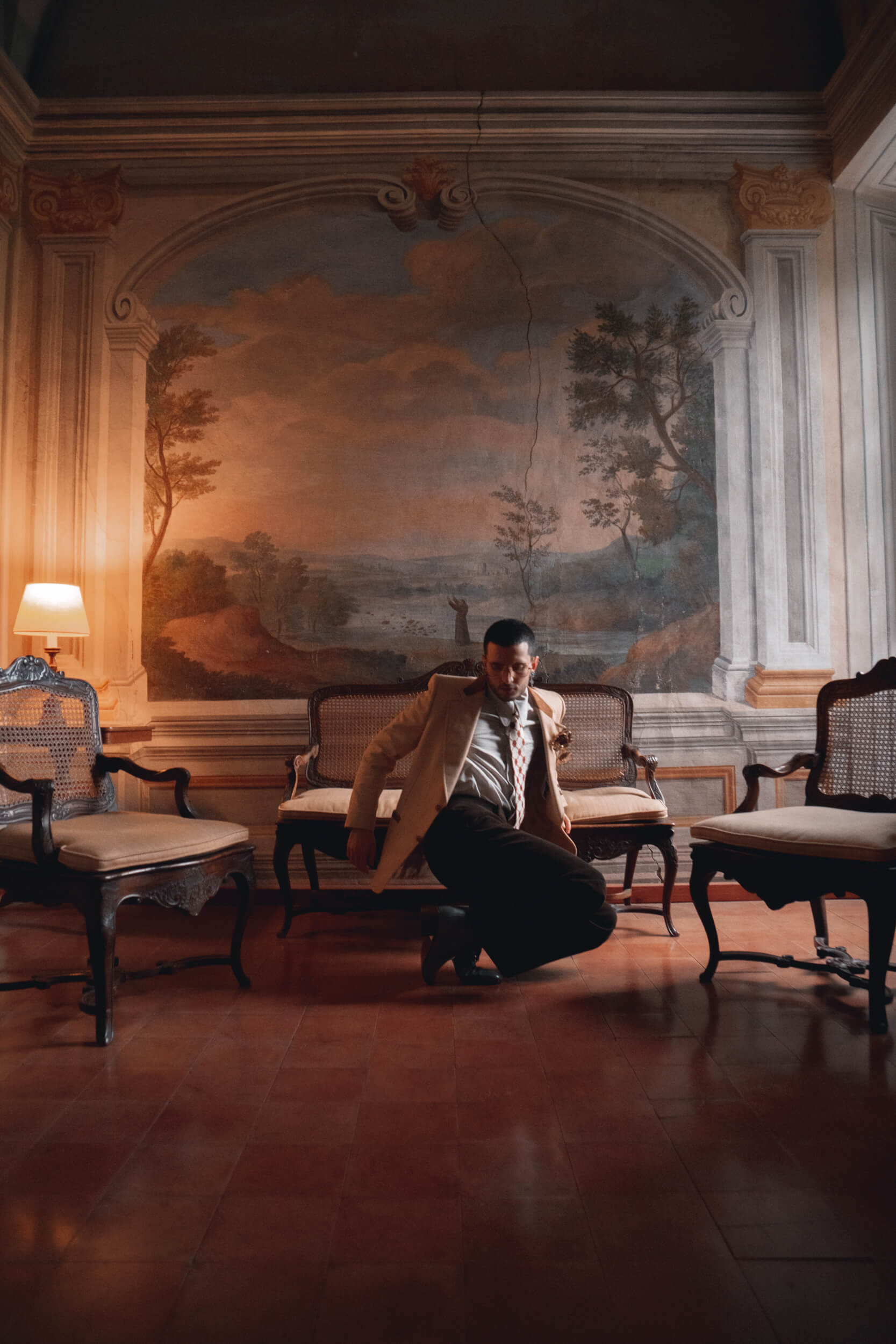
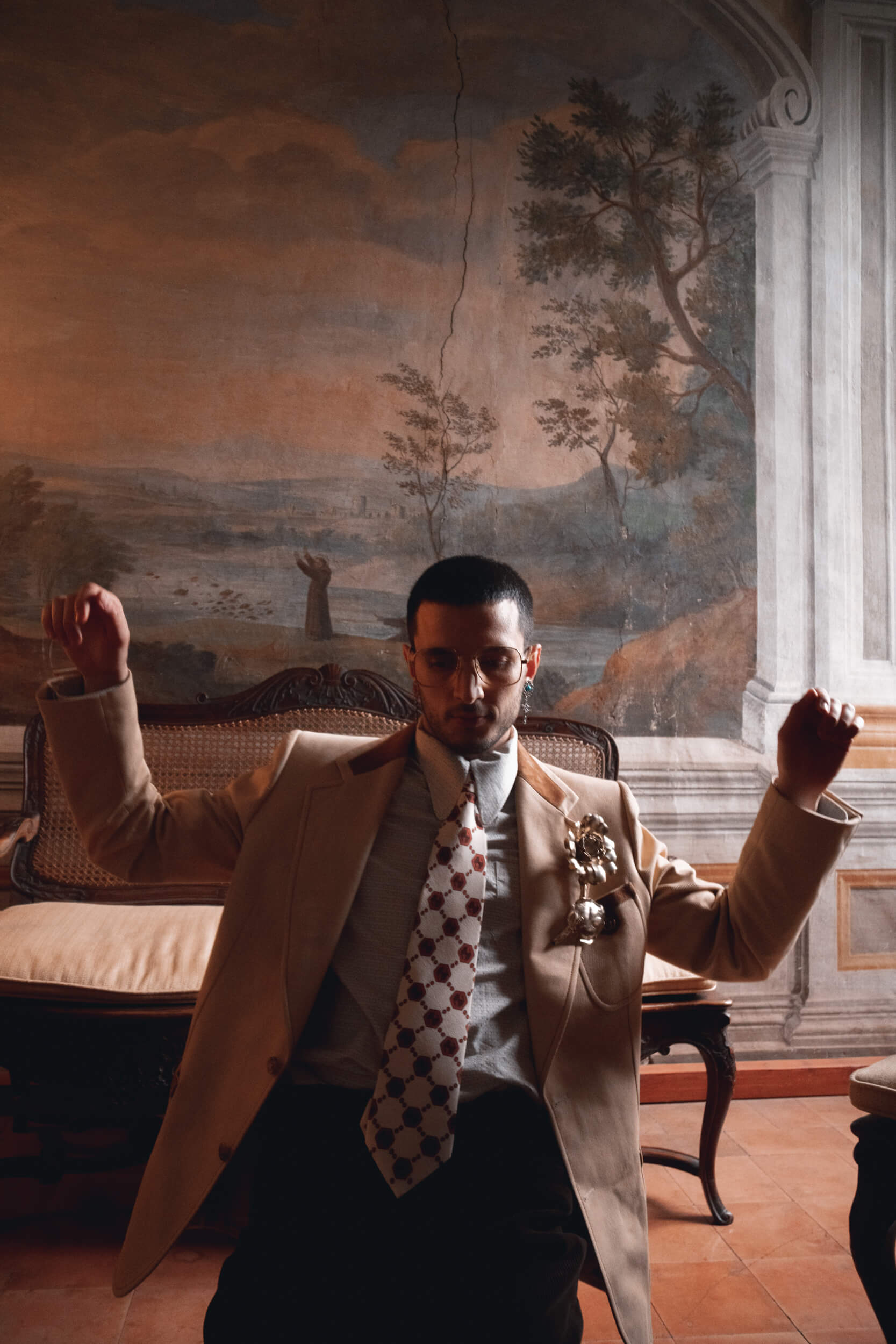
“Suburra:” a TV series no one has seen, do you remember what was your first reaction when you read the script and processed the role you would have played?
More than the first time I read the script, I remember the first meeting we had, Alessandro [Borghi] and I, with Gina Gardini, who was also at the audition looking for the right Lele, eventually played by Eduardo Valdarnini; we were auditioning, and there was this scene, the scene of the initial pact, at the end of the first episode of the first season, and she told us about some dynamics, she talked about Spadino’s sexuality, their relationship, the conflicts, the fact that we needed to find some common ground, a meeting point to make such different characters, both from a cultural point of view and other things we can learn from the show, become friends soon because in cinema you need to cut the timeline; maybe, in real life, such characters would have needed much more time to trust each other, and in the first season they’re always on their guard, both of them, chilly about each other, but you need to shorten the time a lot more because you need to tell a whole narrative arch in just 10 episodes. So, I remember that day with Gina and I remember thinking, “Fuck, this is cool.” I had the opportunity to play a role that no one had ever played in any way, and I immediately understood that.
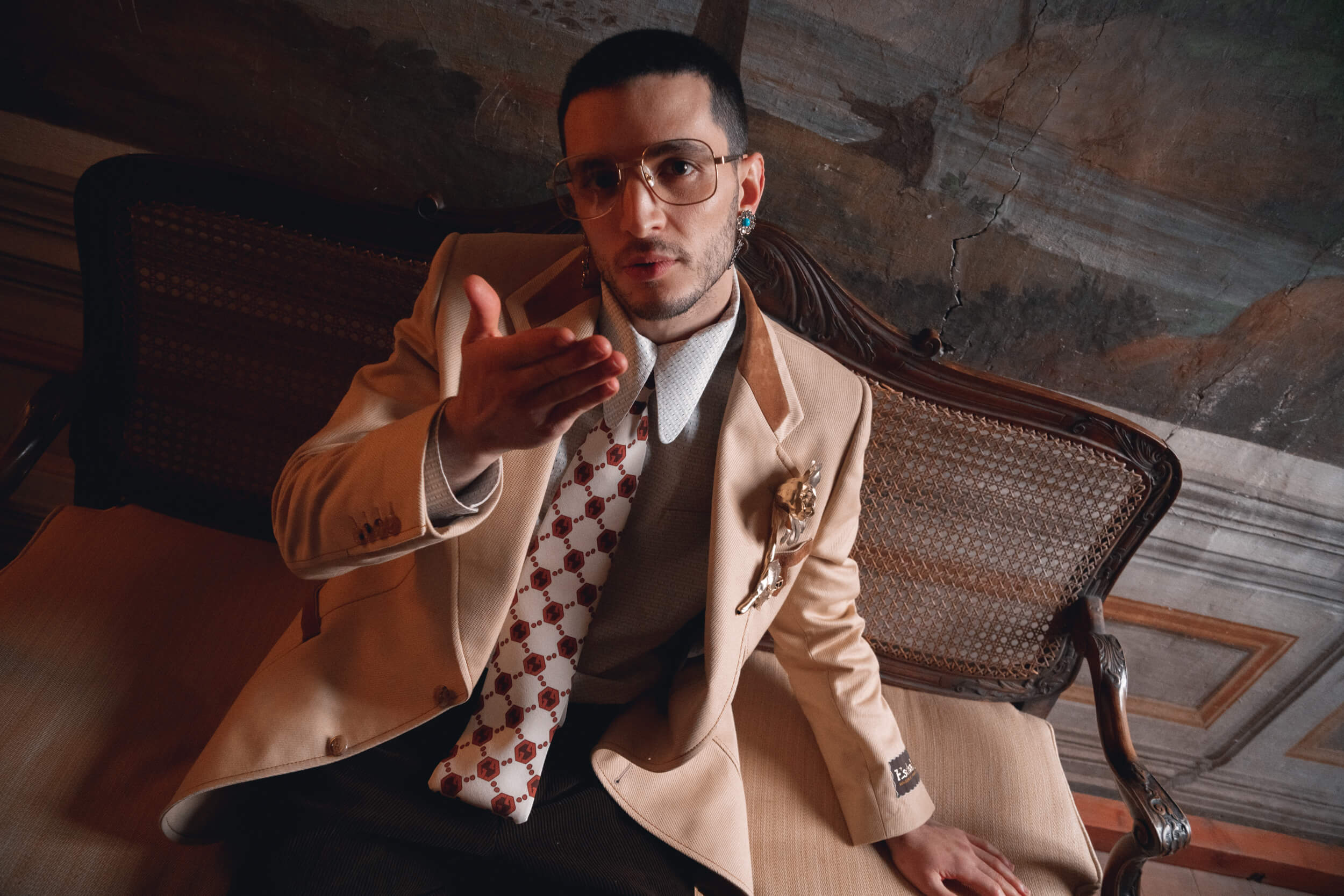
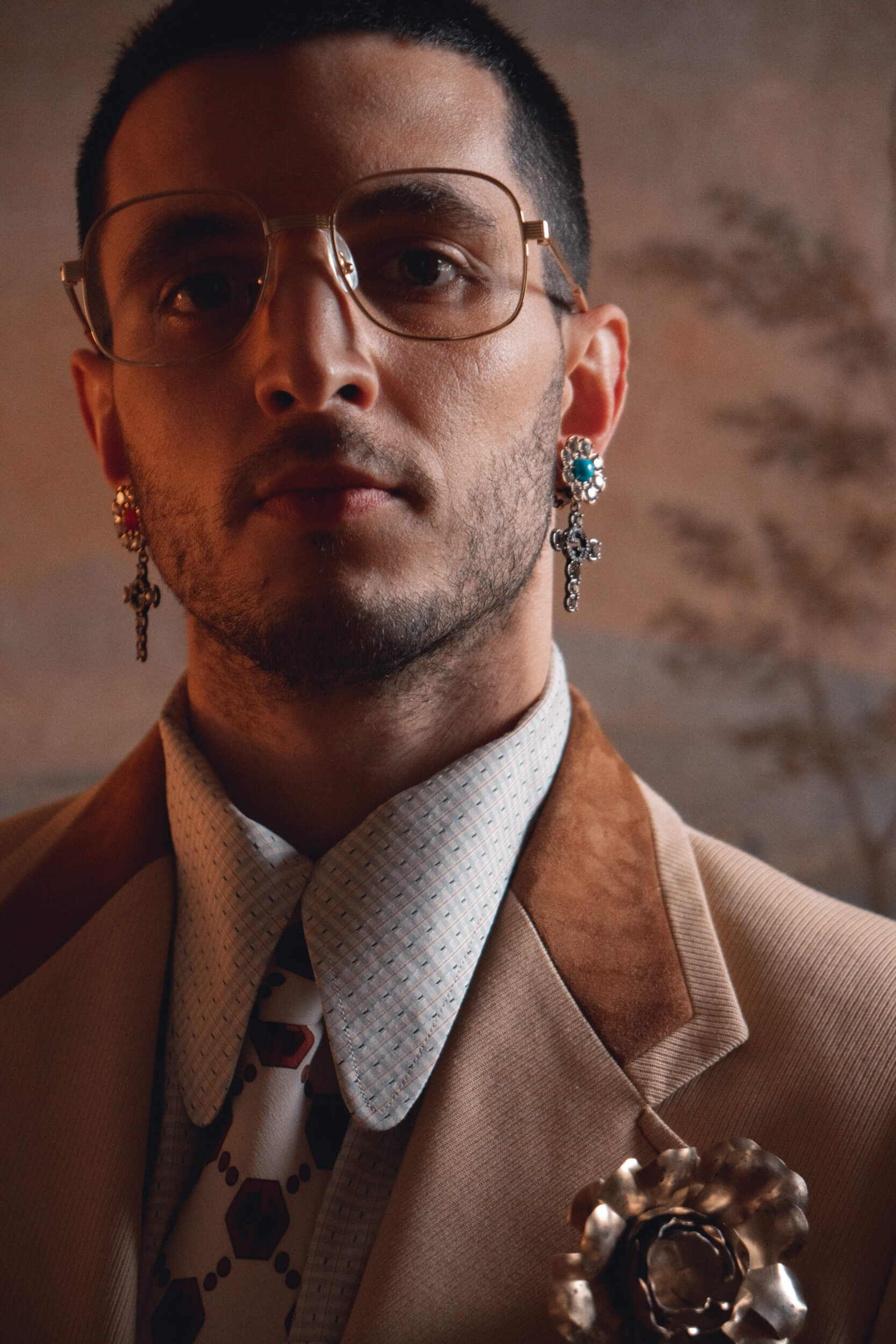
It was fun, I always use this word, “fun,” because that’s how it is, I do a super fun job, and if you don’t handle it in this way, you get depressed in a second, as precarious as it is, so I repeat the word “fun” not because I don’t know any other words, but because I think that’s how it should be.
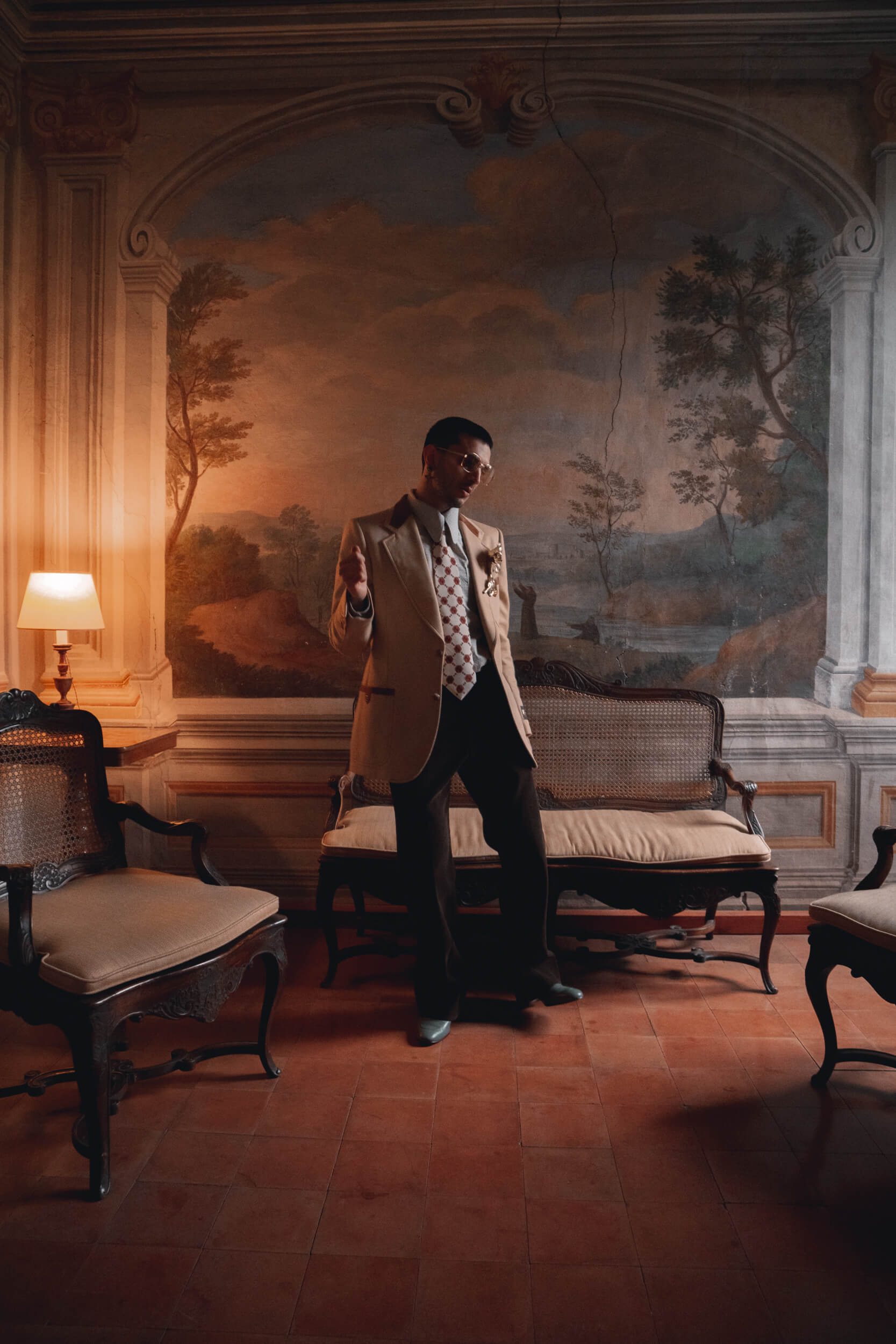
I can imagine how incredible it must have been as a human experience, both for you, the cast members, and for the crew, all together for such a long time: is there something you miss about that?
Yes, as you said, something human originated that goes behind work, a family was born, and that’s something that goes beyond. Moreover, it all happened at a time in my life where I was pretty young, I still am [laughs], but what I mean is that, when I started working on the series, it was 2016, I wasn’t even 26 years old, I turned 26 on set, and something beautiful happened to me as I was growing up together with a character, through what happened in my and his life. However, what actually stayed with me, in the end, was not the role because, of course, the role I got to play was amazing, the project was wonderful, but it’s more about what it left me, a contact with some people whom I know that, if we didn’t see each other for 20 years, and then we’d meet again, it would feel like the last time we’d met weren’t 20 years before but the day before.
“…something beautiful happened to me as I was growing up together with a character, through what happened in my and his life.”
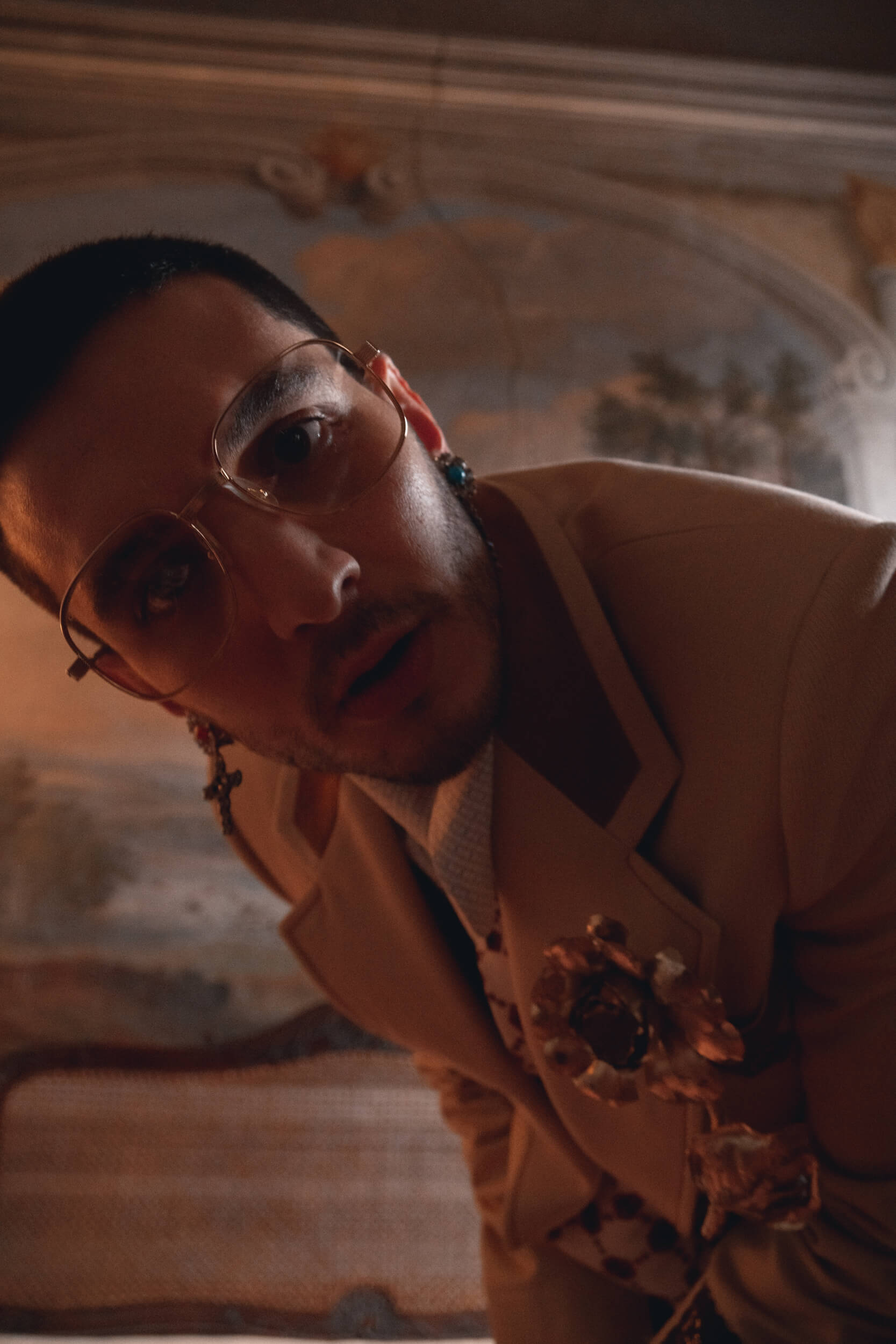
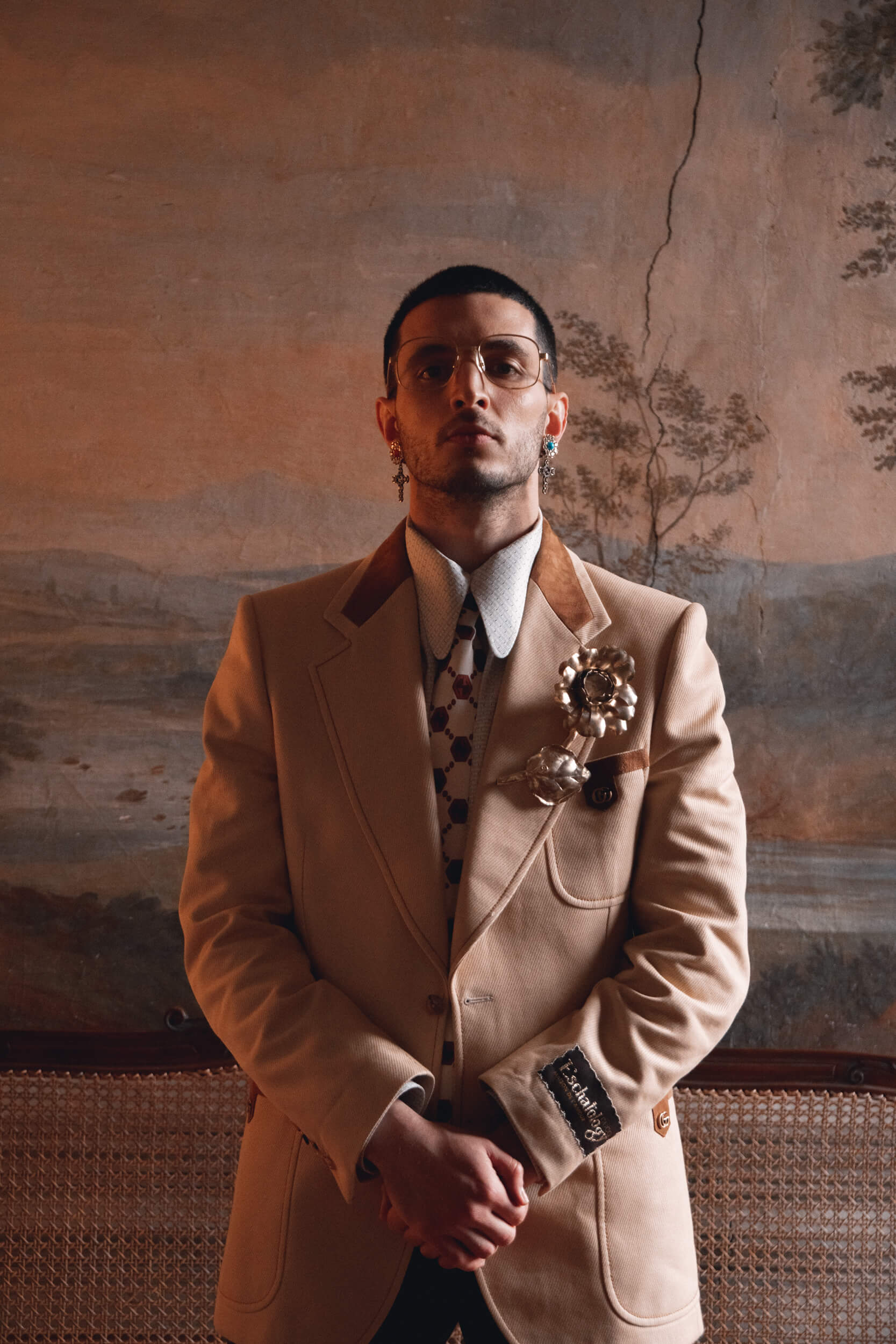
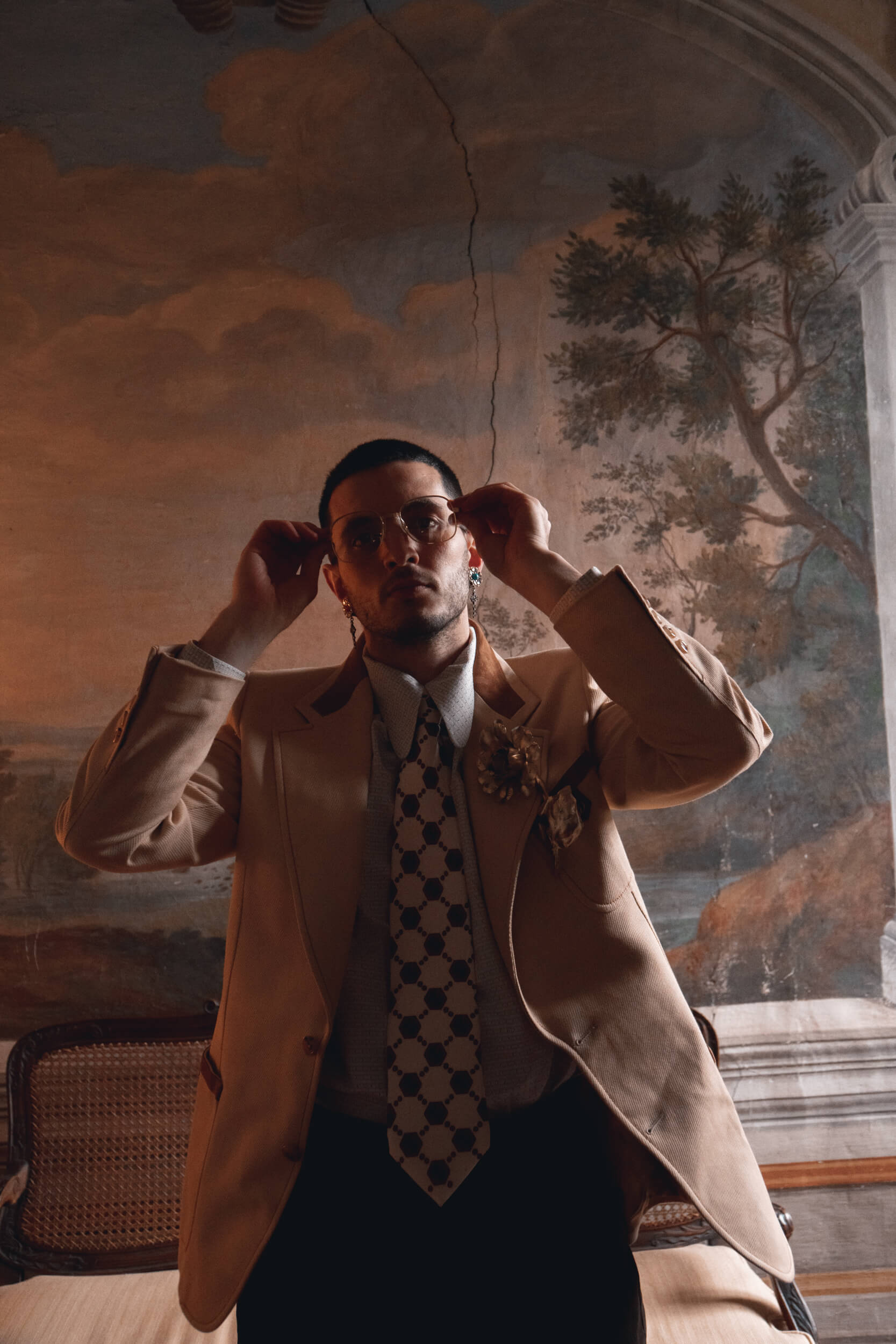
“Alfredino – Una storia italiana” is coming soon: here you play a character and tell a story of great tension, a real-life story. Did you work with the director to understand this tension? What questions did you ask? Or, perhaps, have you discovered something about this story that you didn’t know before, that struck you?
I think everyone knows the story, more or less, but not everything that actually happened. The first time I read the script and found out that that’s how things went – the series has a very documentary approach to the narration of what happened, event after event – reading it, you can’t but think that, if it didn’t really happen, it would have been unrealistic, if it were a fictional story, you would have read the script and said, “Come on, this kid can’t really go through all these things, what the hell, just pick some screenwriters who can write, who don’t make up all these sci-fi stuff!”
But, unfortunately, this kid went through all sorts of things, so to tell such a story is a huge responsibility. I believe it is a story that needs to be told, in the sense that it’s part of our Italian culture; wherever you go, whoever you talk to who lived in those years, if you mention that story, everyone remembers it like trauma, it was a wound, so it’s a piece of history that needed to be told precisely because it marked Italian people’s lives in such a deep way.
What I did to play a real-life character was to take what I needed to be able to play him: Marco Pontecorvo didn’t ask us to copy the real-life people, he didn’t tell us, if maybe someone has some tic, “let me show you, you need to copy that tic,” he didn’t ask us to do such work. The character I play, Maurizio Monteleone, was a big emotional punch, especially because I used to see him and Tullio Bernabei – the character played by Daniele La Leggia, who’s my superior in the speleology department and a very close friend of mine, as you can see in the series – coming to set, which was recreated with all the details of that situation, who couldn’t even stay on set for too long, as their wound is still fresh; it was challenging, and I told myself, “Okay, this is serious, we can’t fuck around here.”
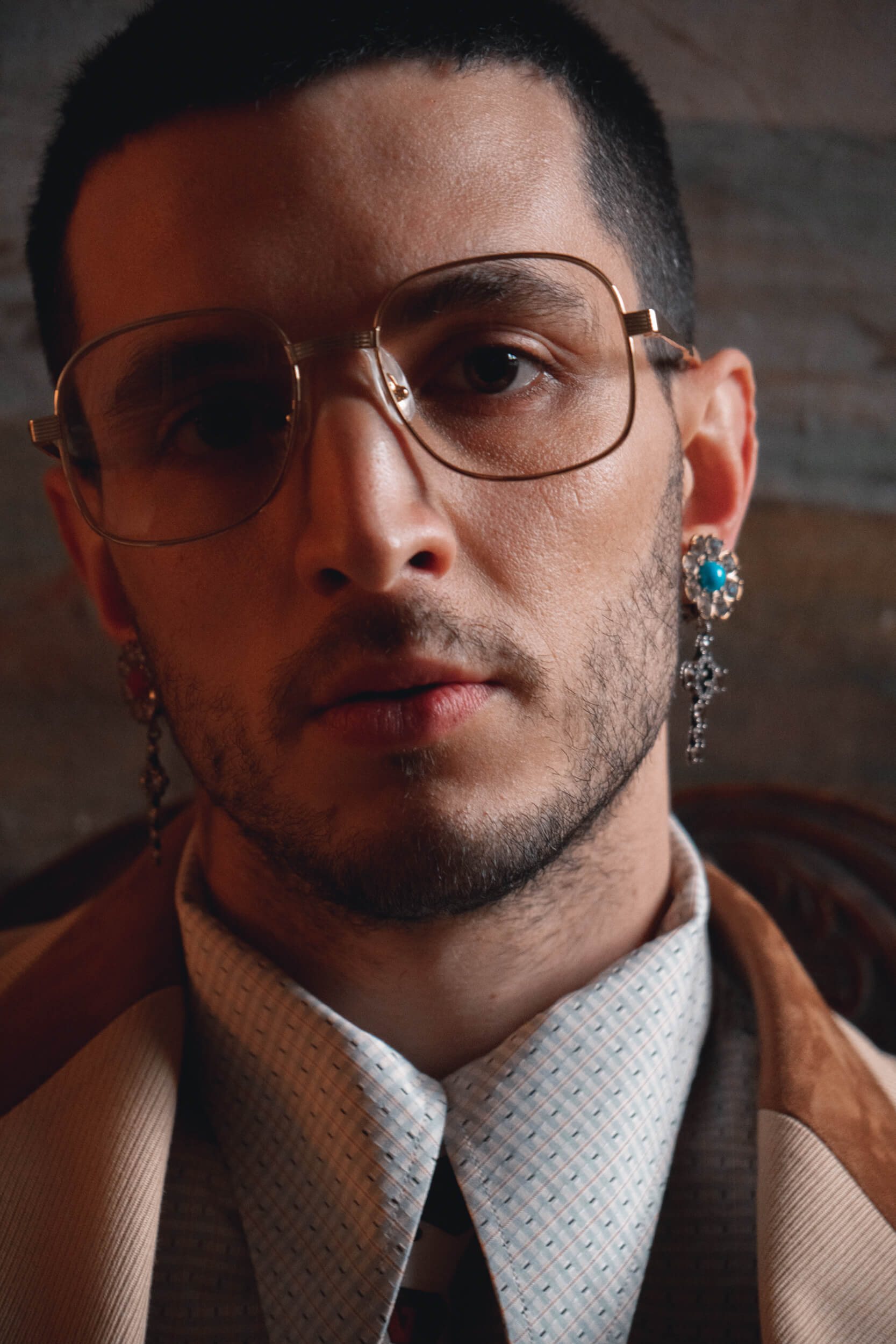
“…it is a story that needs to be told, in the sense that it’s part of our Italian culture; wherever you go, whoever you talk to who lived in those years if you mention that story, everyone remembers it like trauma, it was a wound, so it’s a piece of history that needed to be told precisely because it marked Italian people’s lives in such a deep way.”
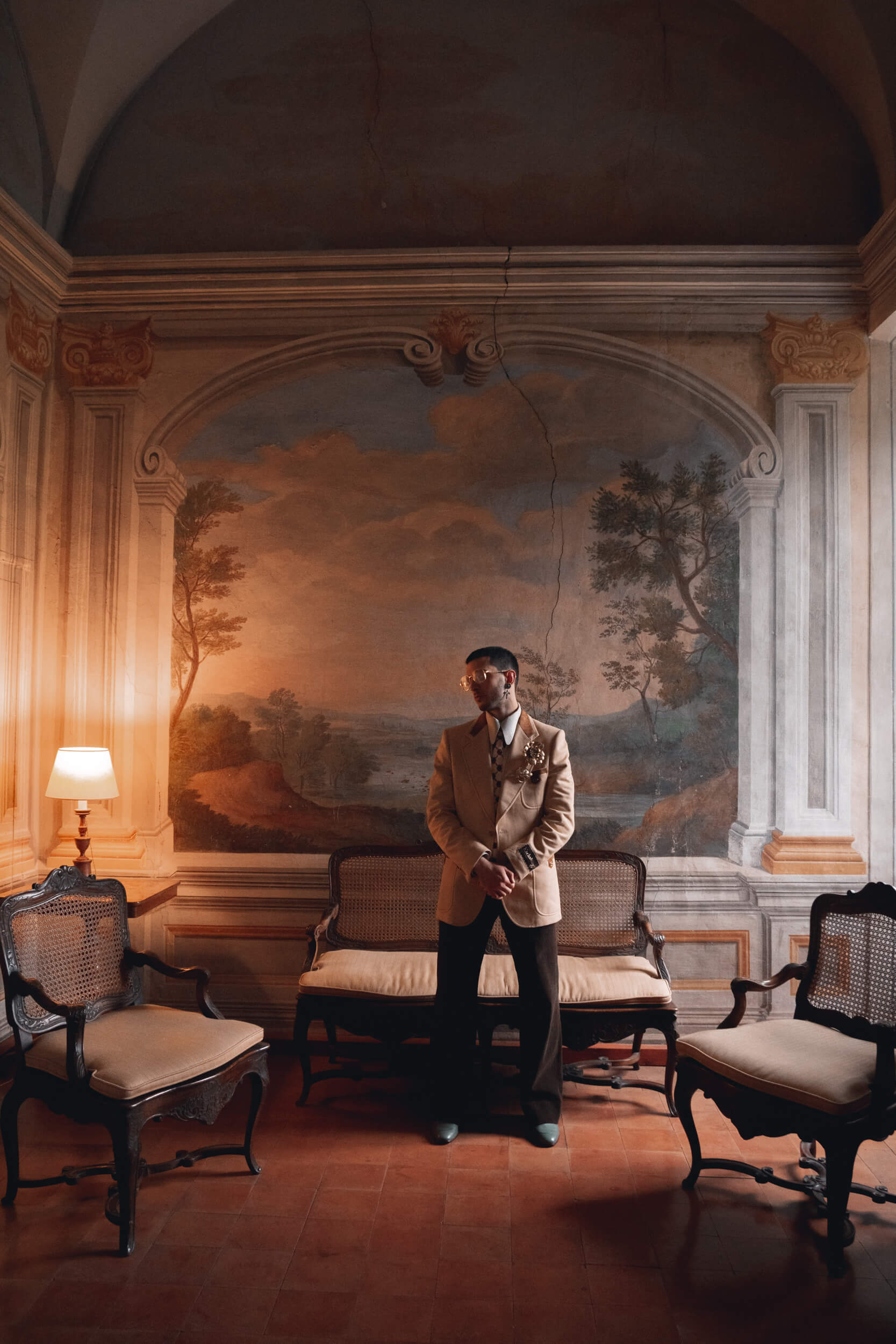
Maybe there are younger people or people in general who’ve heard of this story but don’t know the details, so I think it’s very important to bring to life stories of this kind.
I think that the series might be liked or disliked, like all things; yet until the last moment, you hope they save him, it’s crazy because they lived moments of actual joy, an ephemeral joy that, unfortunately, was torn apart after a few seconds, but it made me hope they could make it while watching the episodes.
Moreover, Maurizio is a character who shouldn’t have been there, this is the thing about that role, it’s a character who might not have been there in that moment because he wasn’t the speleologists’ team leader; however, for some strange reason, he was the one who answered the phone in the middle of the night, when they called to say, “we know you’re speleologists and we need your help,” so then he called the team leader. He has a totally anarchic heart, he rebels against whatever order, you’ll notice that even in his relationship with Francesco Acquaroli, who plays the fire chief: there will be a fight between the two of them, don’t ask me why it’s always Francesco… [laughs]. They fight a lot because Maurizio is a very passionate and anarchic character, so if he firmly believes in something, that’s how it must be.
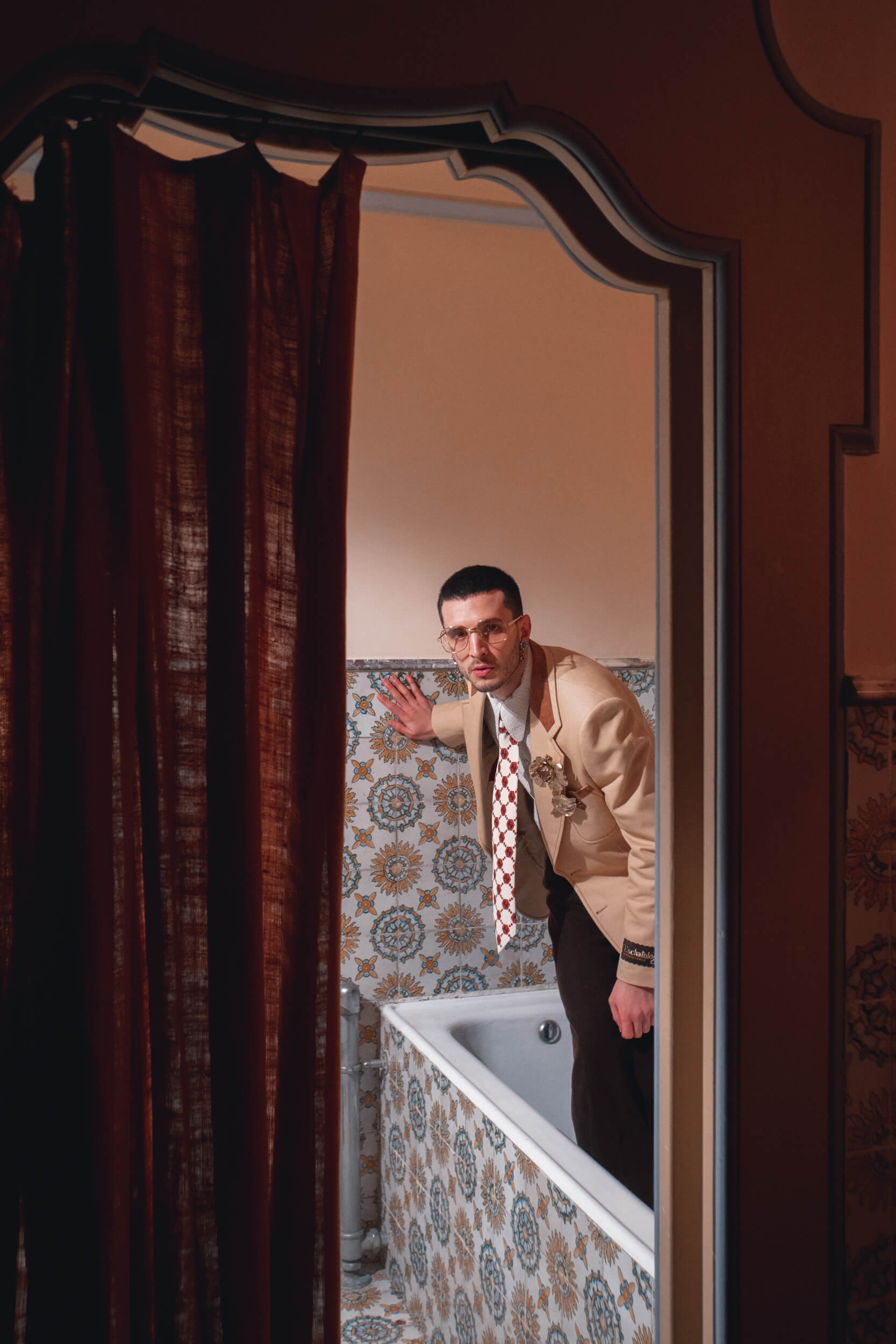
Not too long ago, another movie came out, “Non mi uccidere:” what was it like to bring your character on screen, someone once again very different from anyone you’ve previously played?
Look, it was a nice challenge I took on, that Andrea [De Sica] made me take on because I had to give life to a multi-faceted character in very few scenes. Most of all, it was one of the hardest roles to play for me because of the thoughts he had: he’s a character who doesn’t end well, and – I guess those who wanted to see the film have already seen it – the fact that he killed himself is an extreme gesture, maybe because he didn’t want to be eaten up, but above all because of what he was going through at that moment.
I love life very much and I’ve always had dreams, aspirations, I’ve always had something that kept me going on because nothing is ever enough for me, I always want more, while he’s resigned, he has no dreams, he doesn’t know what he wants from life, he thinks that nothing makes sense anymore; to live all that for me, being totally different from him, was a heavy burden. This made me say: “Fuck, cool, I want to do this, who gives a shit if he’s not the lead, I want to tell this stuff.” Then, I liked the project because it was completely different, a unique project, on its own, something that no one had ever made in that way, so I immediately said yes to Andrea when he offered me the part.
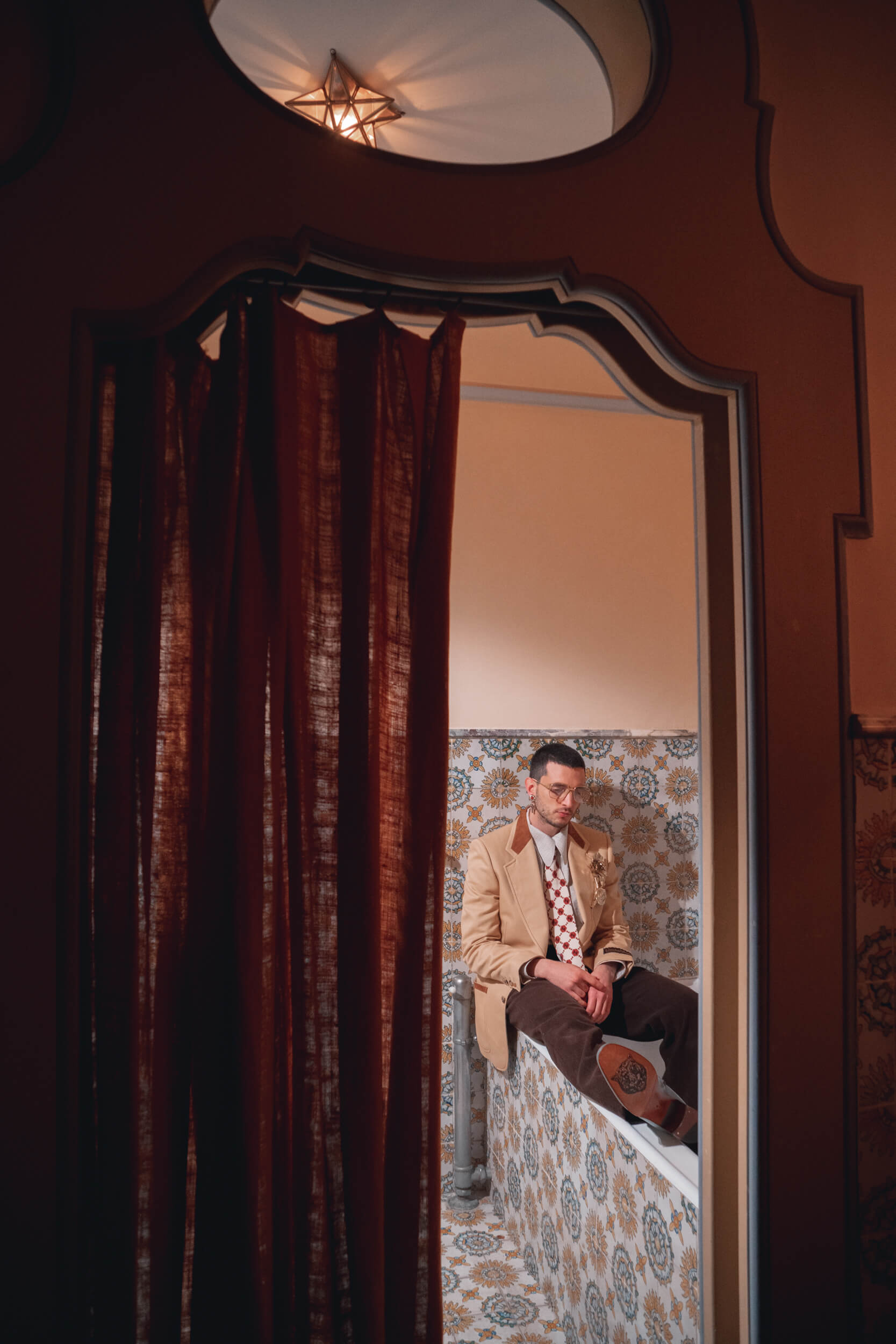
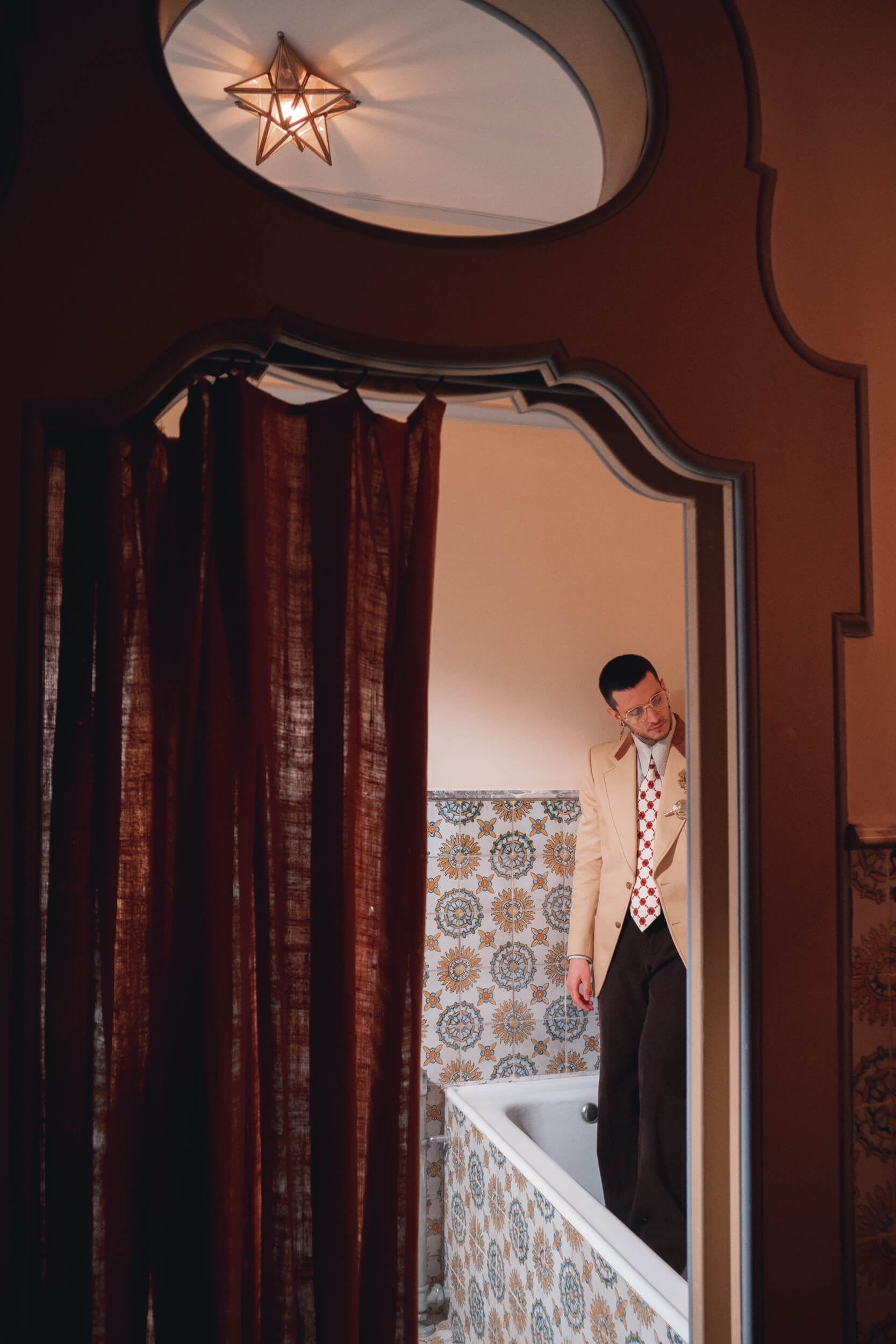
“…it was a nice challenge I took on, that Andrea [De Sica] made me take on because I had to give life to a multi-faceted character in very few scenes.”
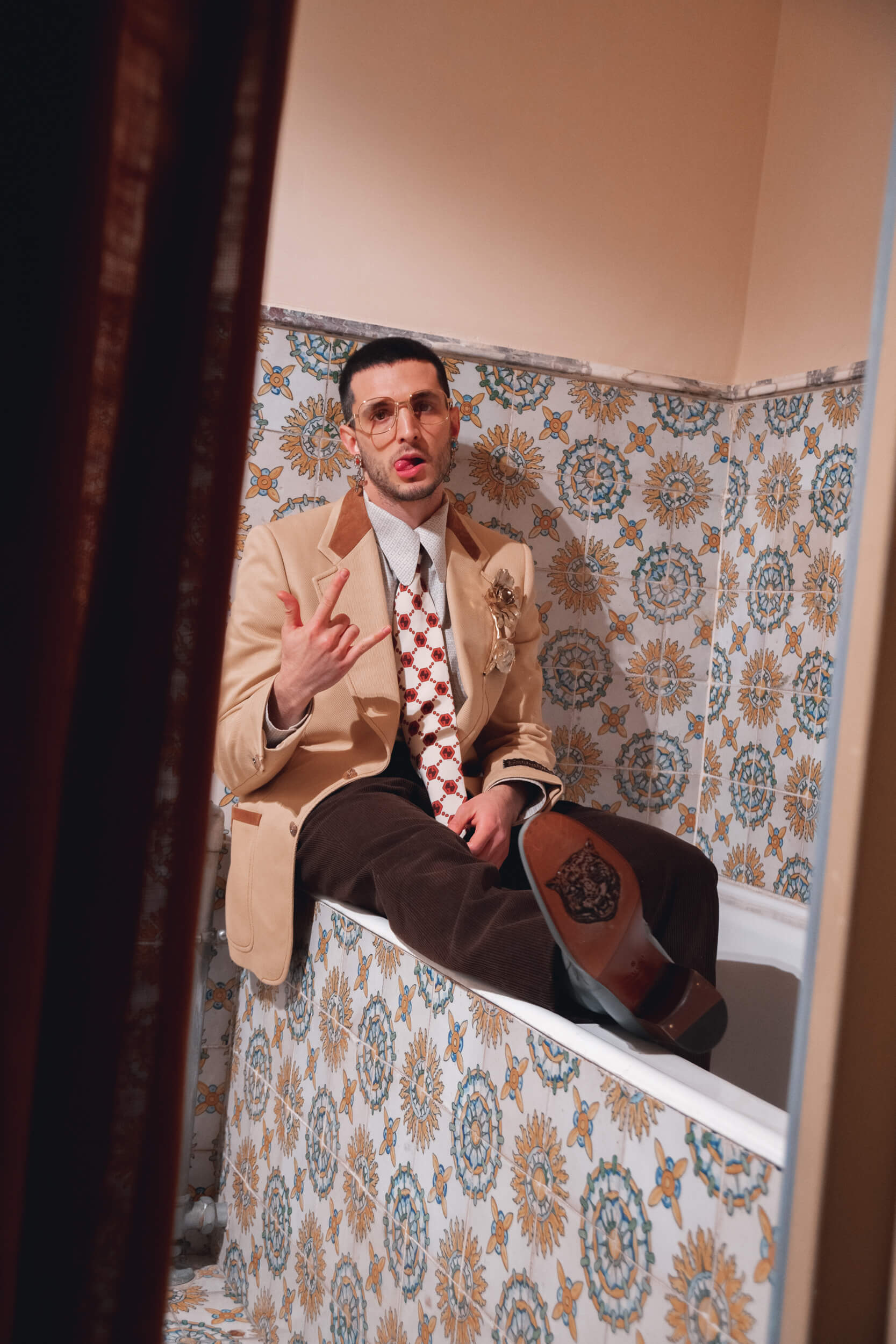
By the end of the year, the movie “Ghiaccio” will also be released, and you play the lead character in this one. You previously mentioned that every time you play a character, you discover something new about yourself: while playing this character, who’s a boxer, what did you discover about yourself?
The will to be up to anything to make a dream come true.
In the beginning, he’s really struggling with his personal situation and this takes him far away from his dream. However, from a certain point on, he starts believing in it again, so it somehow becomes the only thing that can save him. This is a bit the way it went for me with acting, even though I didn’t have family problems or difficulties, on the contrary, I’ve been a very lucky kid; however, I used to live in a context I didn’t feel mine, for a whole series of reasons because if you’re not an actor, living in Abruzzo is fine and you’re ok with it; as a kid, though, I felt this melancholy and loneliness that, somehow, made me feel different from everybody else, and my character from “Ghiaccio,” Giorgio, is like that. He comes from the “borgata” (like a small village within the city), lives in the borgata, but he’s a whitefly, he does things that everybody does, he makes some huge mistakes that you make in these neighborhoods, but deep inside he knows they’re wrong, deep inside he knows he wants something else; then, he’ll need someone who will push him beyond his own self, but that stuff is real, I’ve experienced it, too, the desire to escape from the place I grew up in, as much as I love it, as much as it feels like home, as much as I’m grateful for everything I’ve had, but I felt it was a situation I had outgrown, so, moving to Rome and becoming an actor came from that, as well.
I’m quite stubborn, if I put my mind to do something, I do it, so I had to really work my ass off [laughs] to train and look like a boxer, not only physically, but also in the gestures. Boxing is something you can’t escape from, in the sense that either you can do it, or you can’t do it, there’s no grey, it’s only black or white, if you get in the ring and you’ve never been there, it shows, you can’t escape from that. I always thank Giovanni De Carolis, I’ll thank him ‘til the day I die because he trained me like if I had to go to war.
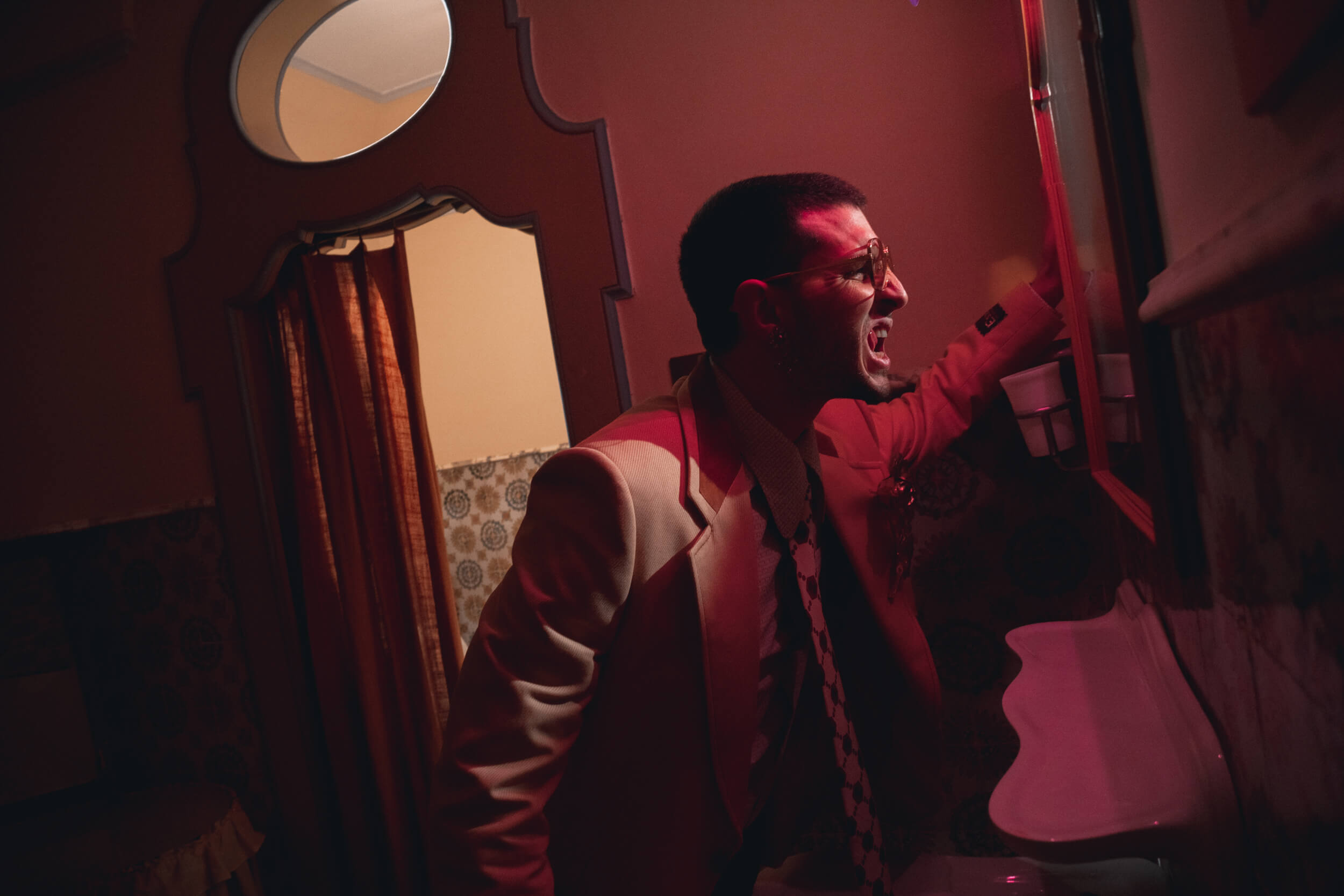
“…I’ve been a very lucky kid; however, I used to live in a context I didn’t feel mine, for a whole series of reasons because if you’re not an actor, living in Abruzzo is fine and you’re ok with it; as a kid, though, I felt this melancholy and loneliness that, somehow, made me feel different from everybody else…”
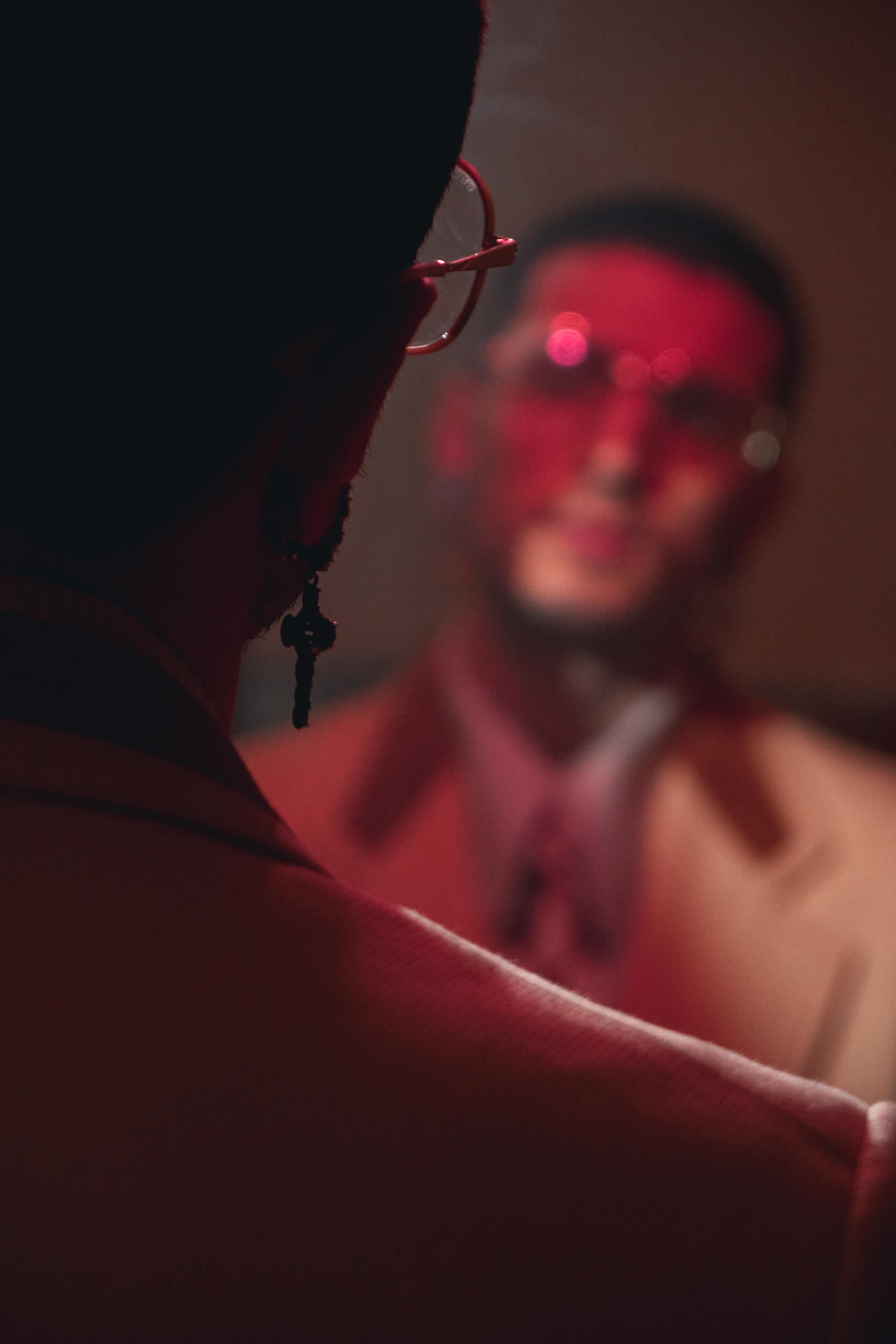
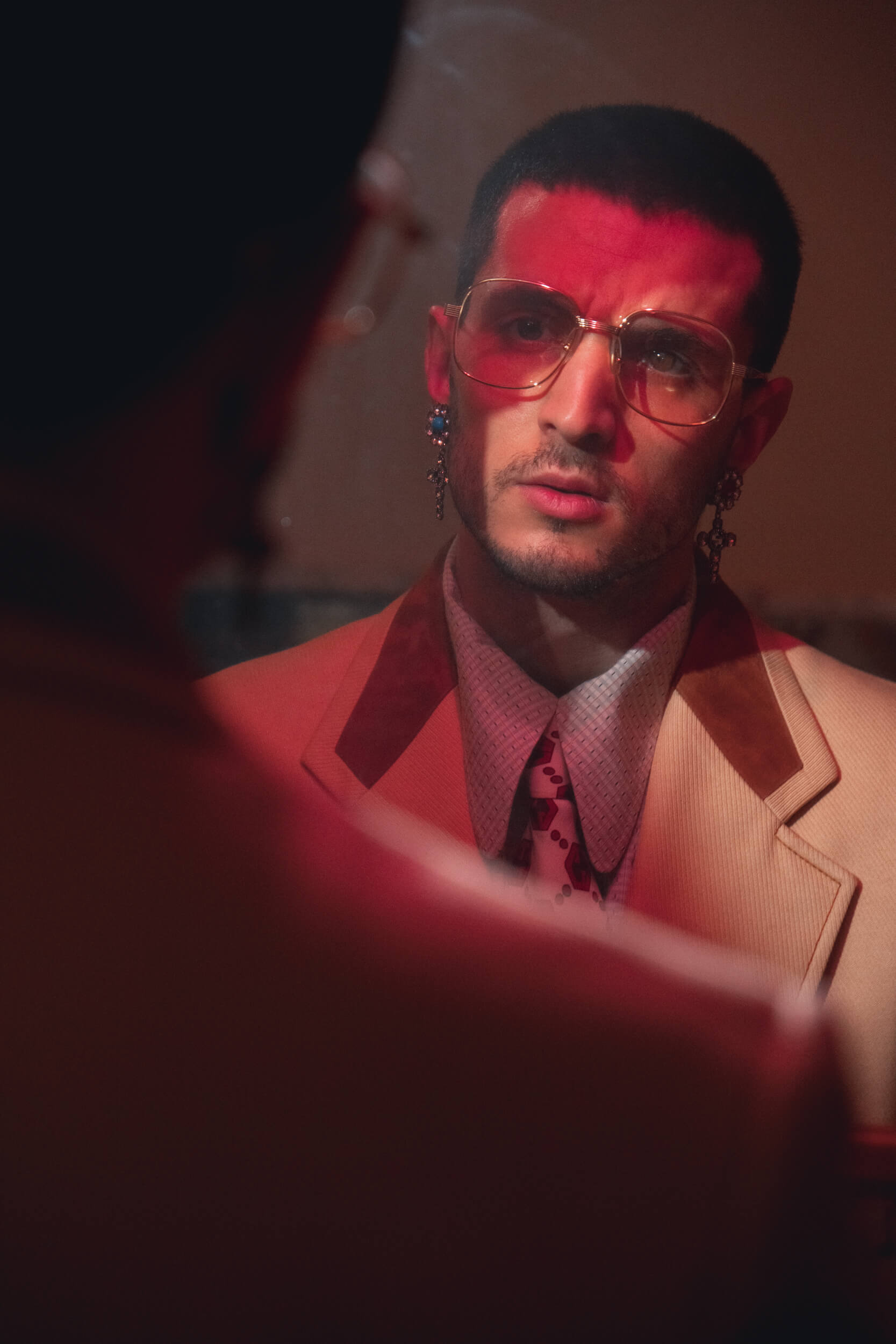
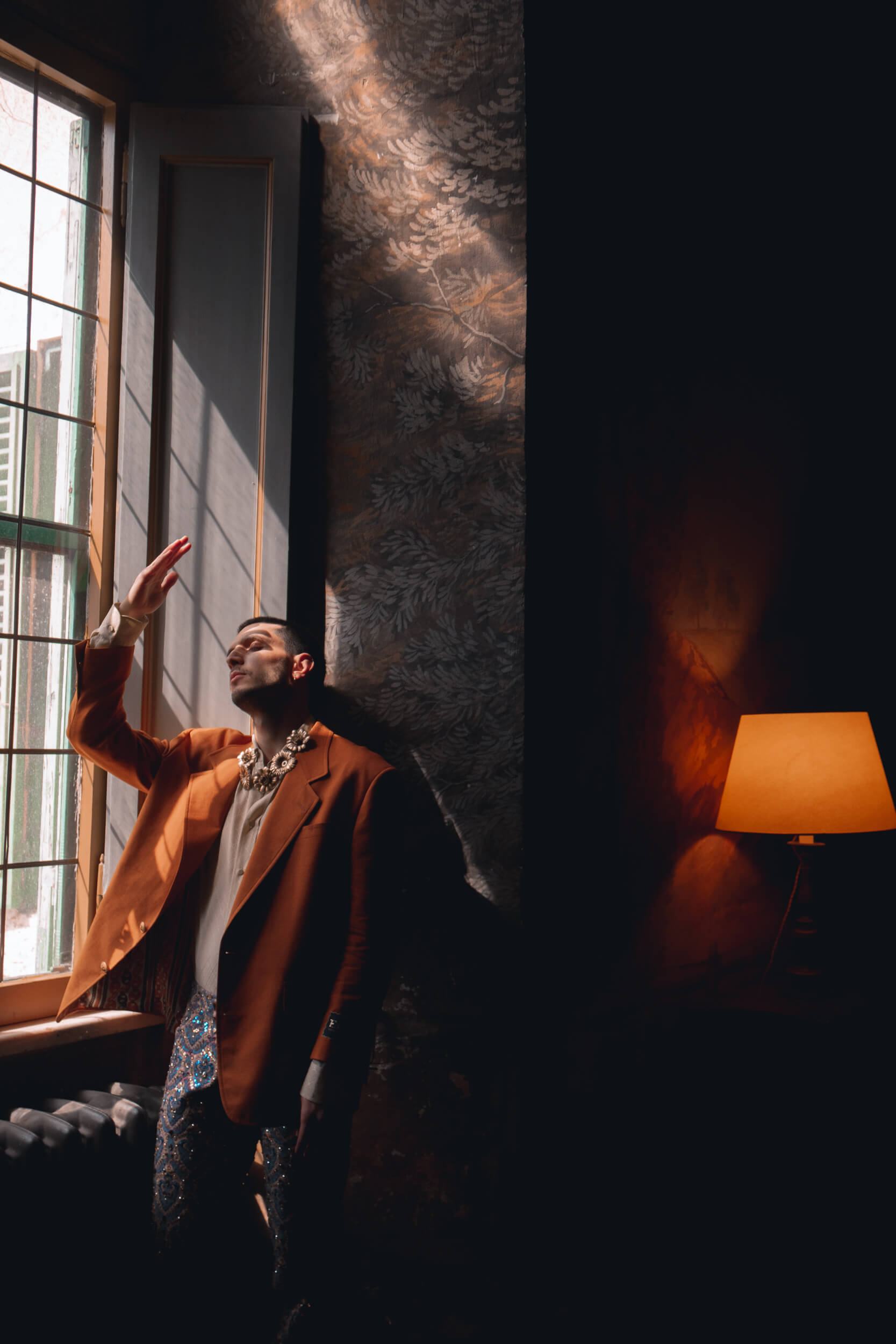
Speaking about “Ghiaccio,” you wrote that this job, being an actor, shows you how difficulties, sometimes, can only be opportunities, and this is very nice.
Yes, that’s it, actually. The fact that you have to train nine times a week and follow a diet that really, at some point, changes you inside. These are limits that, even though someone might judge them as stupid, are still limits, and if I hadn’t had the job I have, I would have probably never done something like that. I’m mentioning something physical because it’s the most evident, but I can find things on an emotional level, as well.
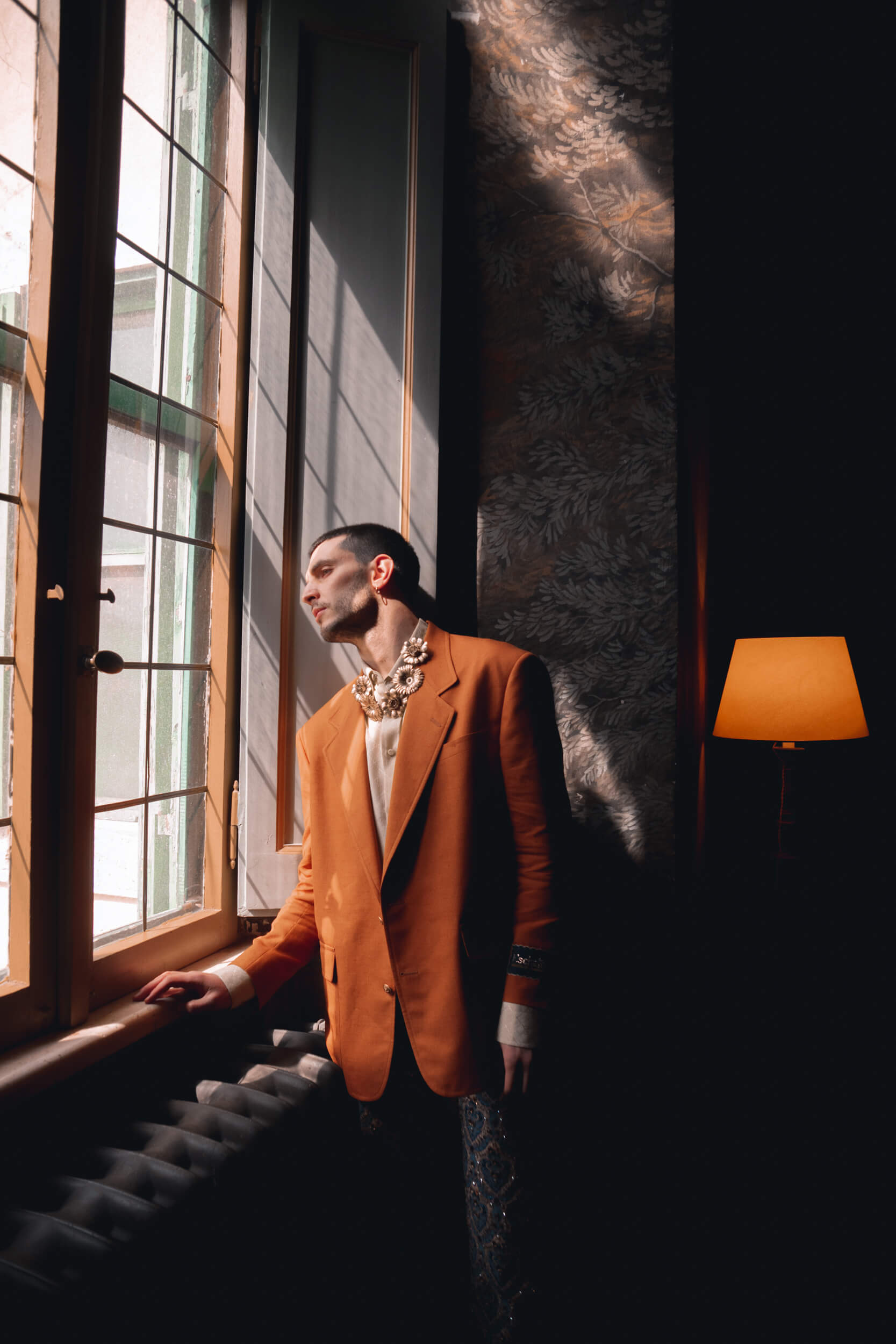
“These are limits that, even though someone might judge them as stupid, are still limits…”
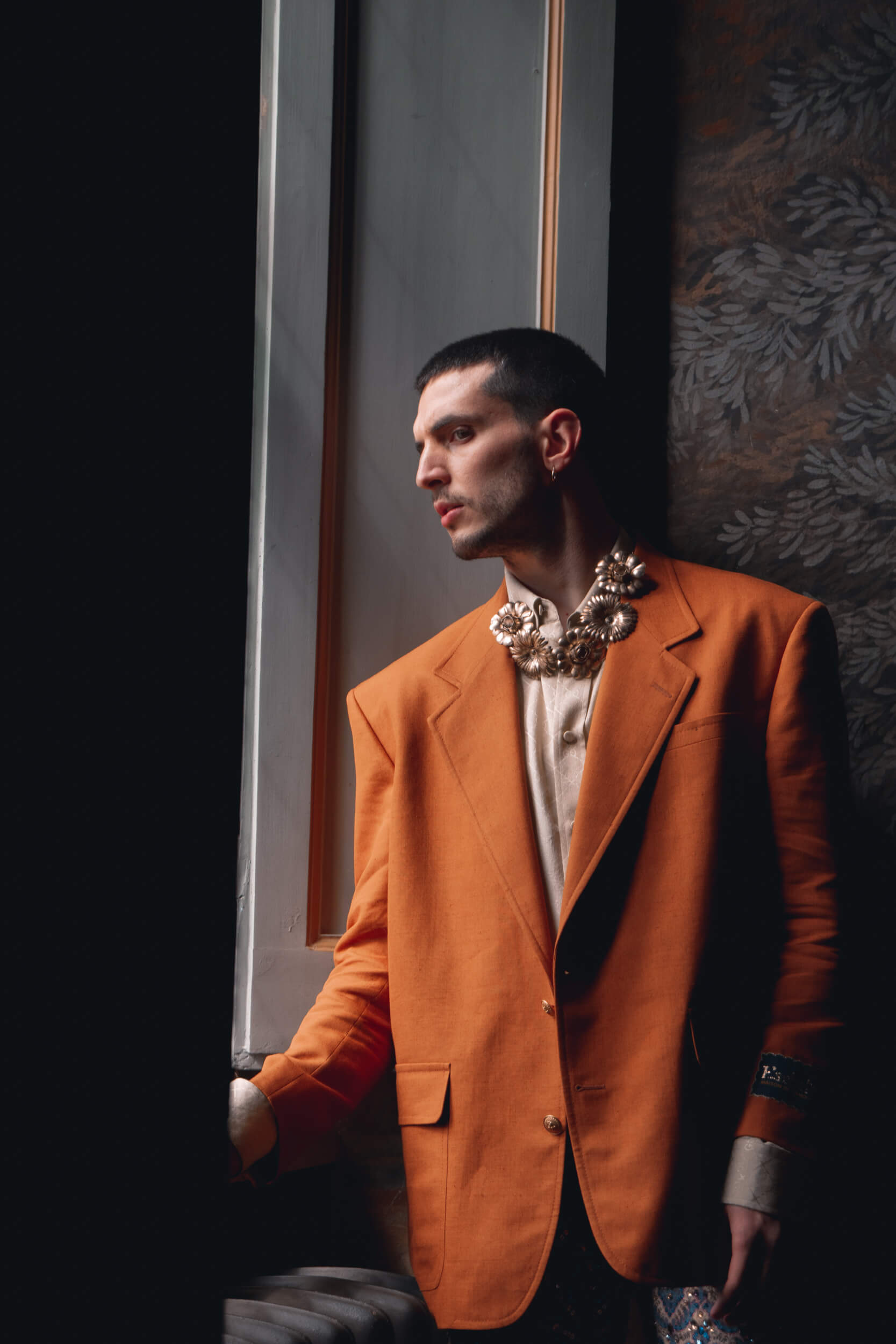
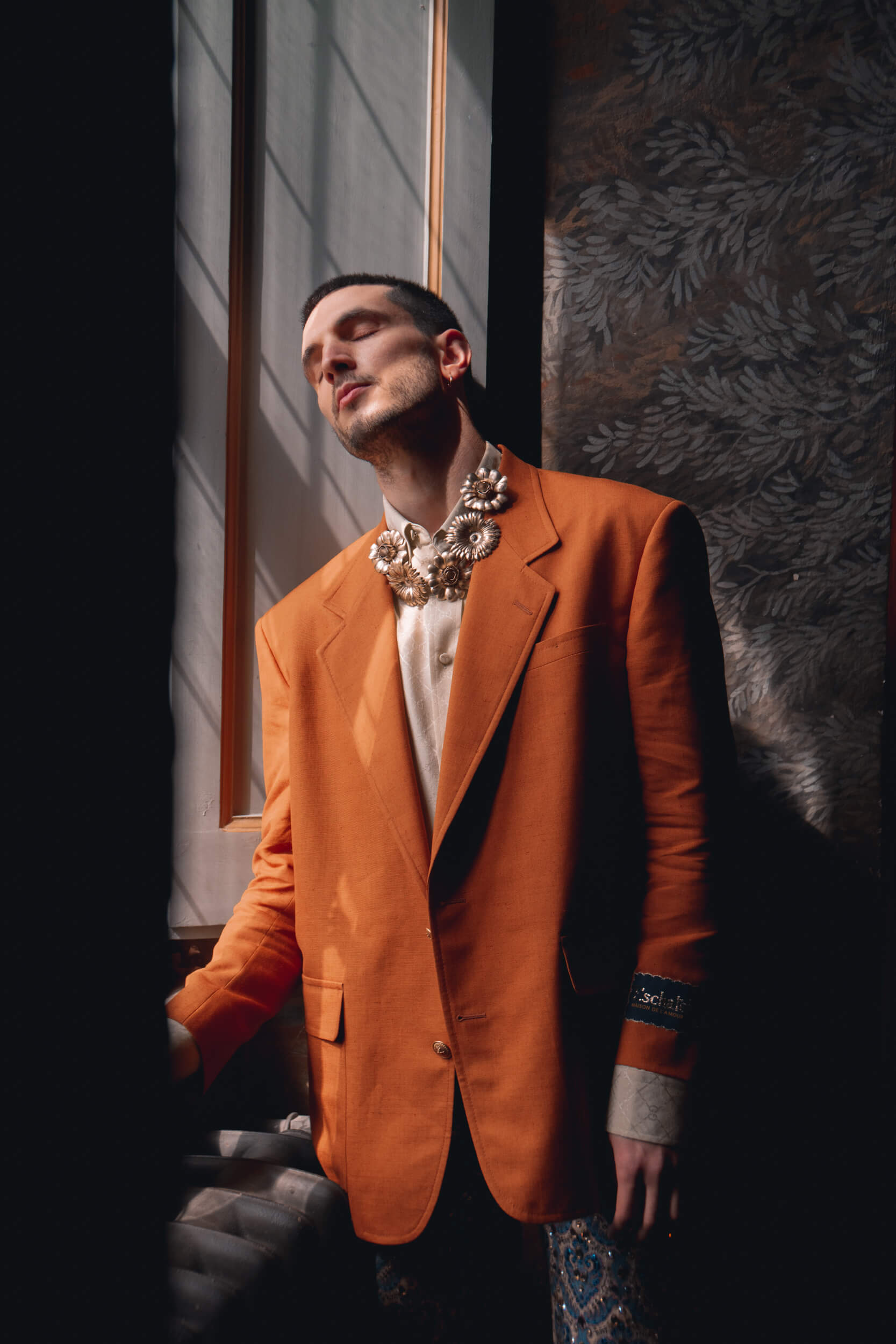
When do you feel the freest to express yourself?
When I work, because in real life I don’t do it [laughs]. In real life, I’m really square, very spit-and-polish, while my job always tells me to clear this order I have in my head because creativity, at least in my case, is made of great chaos, to then go back to an order that is the character’s order.
At first glance, I’d always do well-made things, which is wrong, though, because they’d have no personality, and if you have no personality, the way you tell me something could be the same as a thousand other people’s; on the contrary, what makes your performance different from someone else’s is precisely your personality. What can you do that no one else would ever do? That’s it.
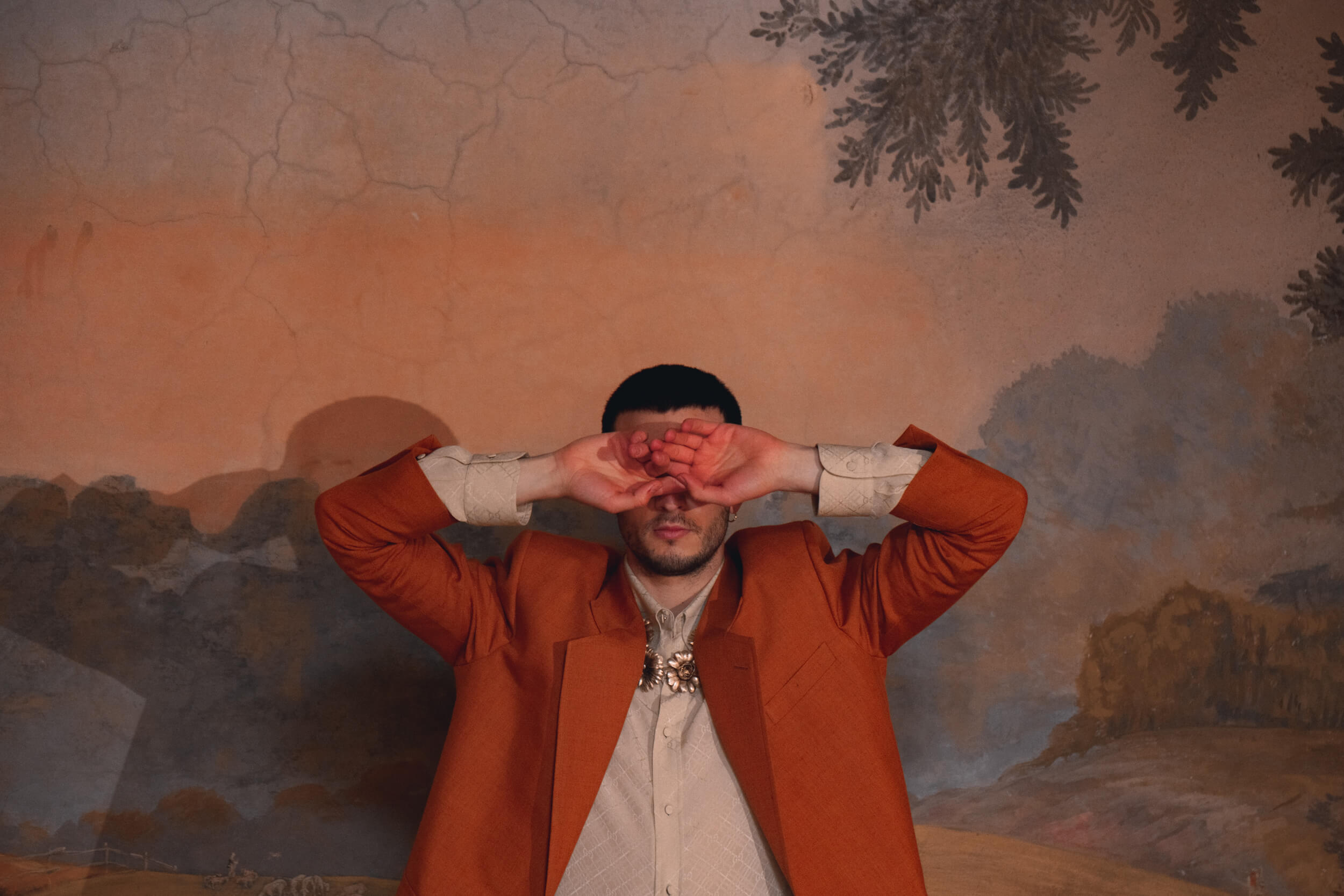
“…creativity, at least in my case, is made of great chaos, to then go back to an order that is the character’s order.”
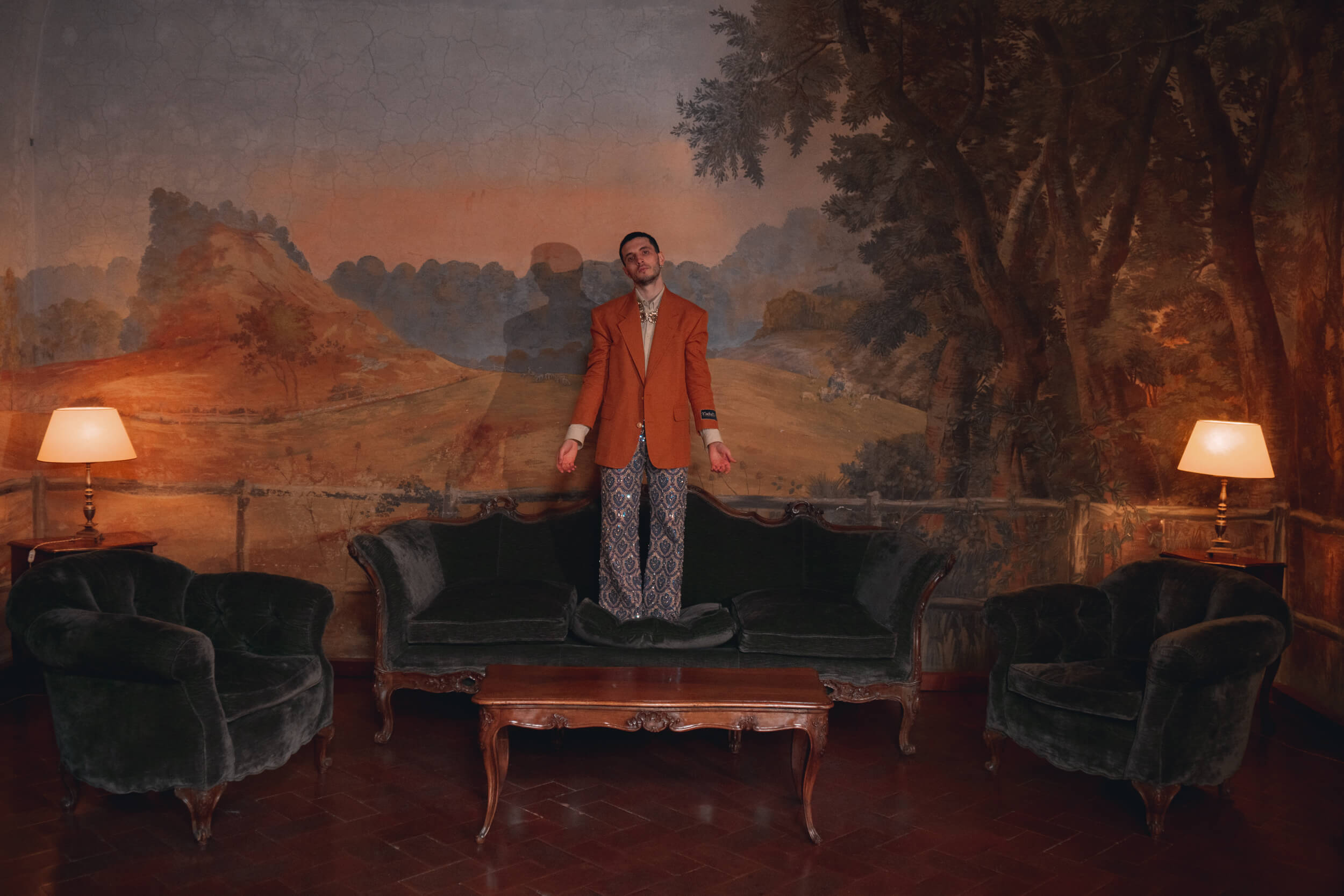
“What can you do that no one else would ever do?”
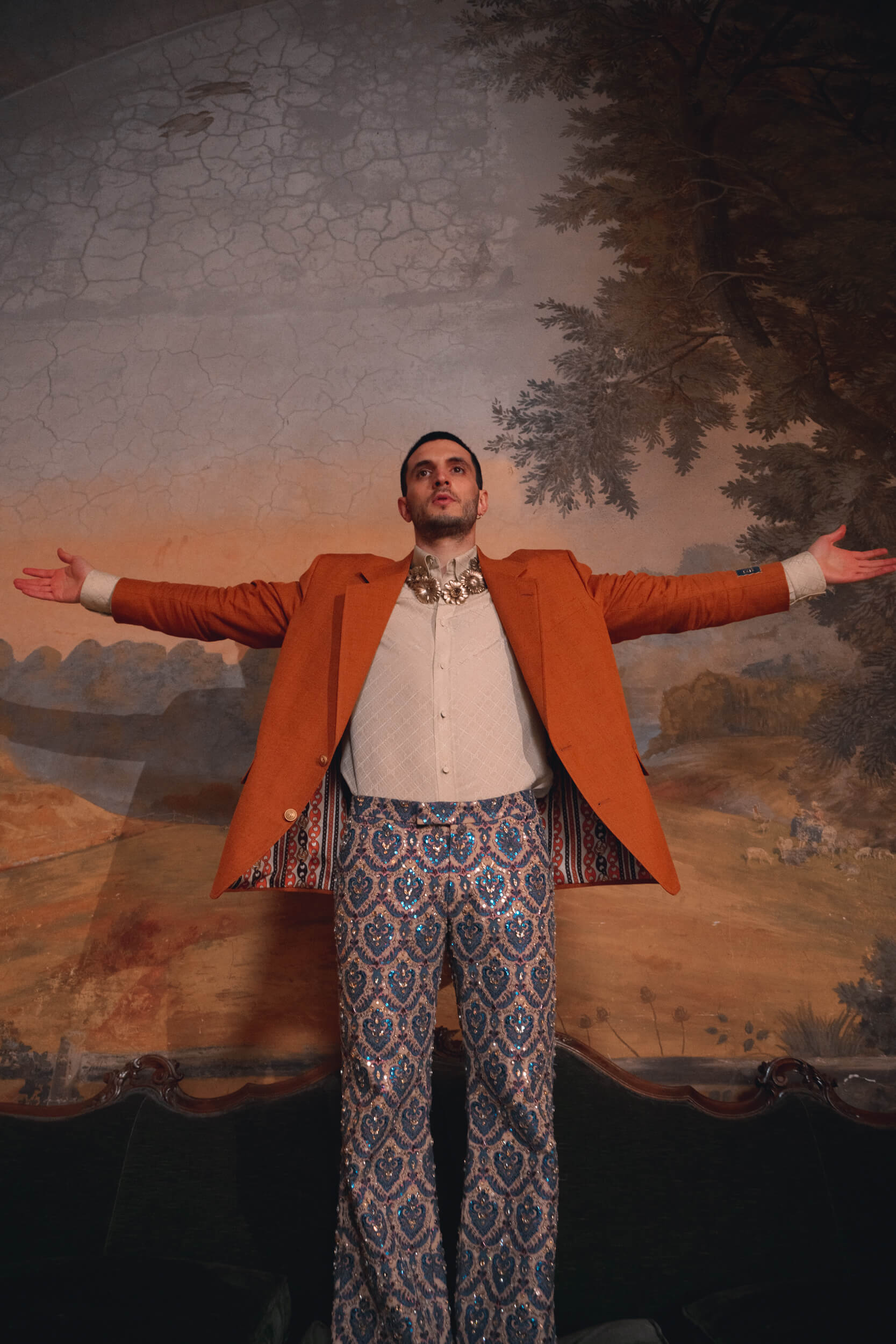
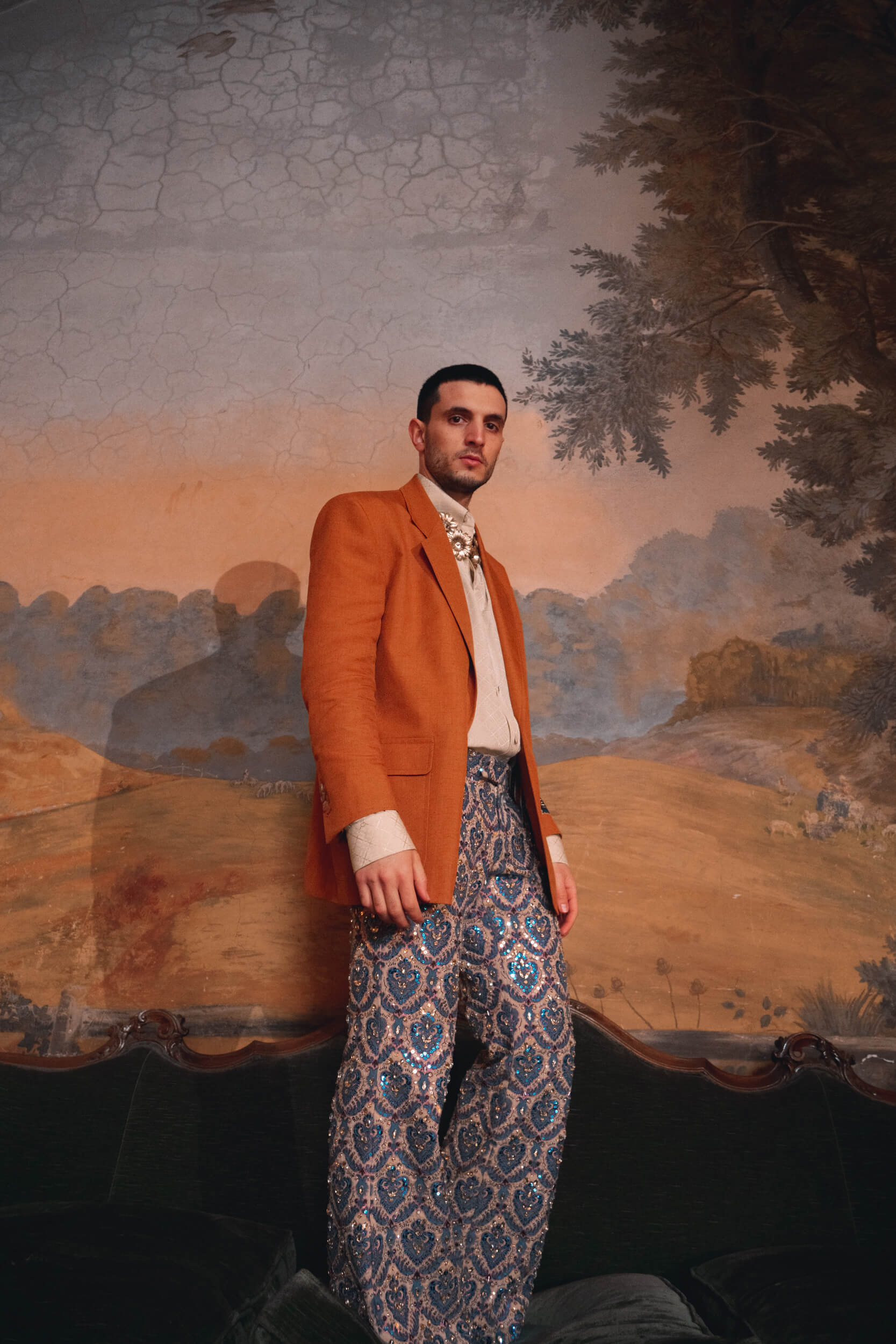
What was, if there was one, a particularly significant encounter, either cinematographic or not, that you’ve had up to this day?
Well, the encounter with my acting coach, Alessandro Prete, for sure and I owe him everything I know about this job, I’ll be forever grateful for everything he’s taught me. By the way, I still work with him nonstop, we work together to rehearse for my roles when I don’t have to travel and I have the possibility to work with him to become a better actor than I am because, as I told you, I always want to improve, nothing is ever enough, in fact, I’d really need a vacation and just some peace and quiet.
I met Ale as soon as I moved to Rome, and we grew up together, we’ve been working together for 12 years now. He’s matured a lot as an artist and acting coach, and I, at the same time, was asked by him to become an always better actor. To everything he offers me to do, I always answer, “yes, fuck, cool, let’s do it” because it’s always a challenge, both for me and him. That’s the cool thing about our relationship, it’s always a challenge for both of us, it’s not about him being “on top of me,” he’s really my mentor: “This thing scares me, does it scare you, too?” “Yes,” “Then I guess we’d better do it because if it scares both of us, it means we need to do it.”
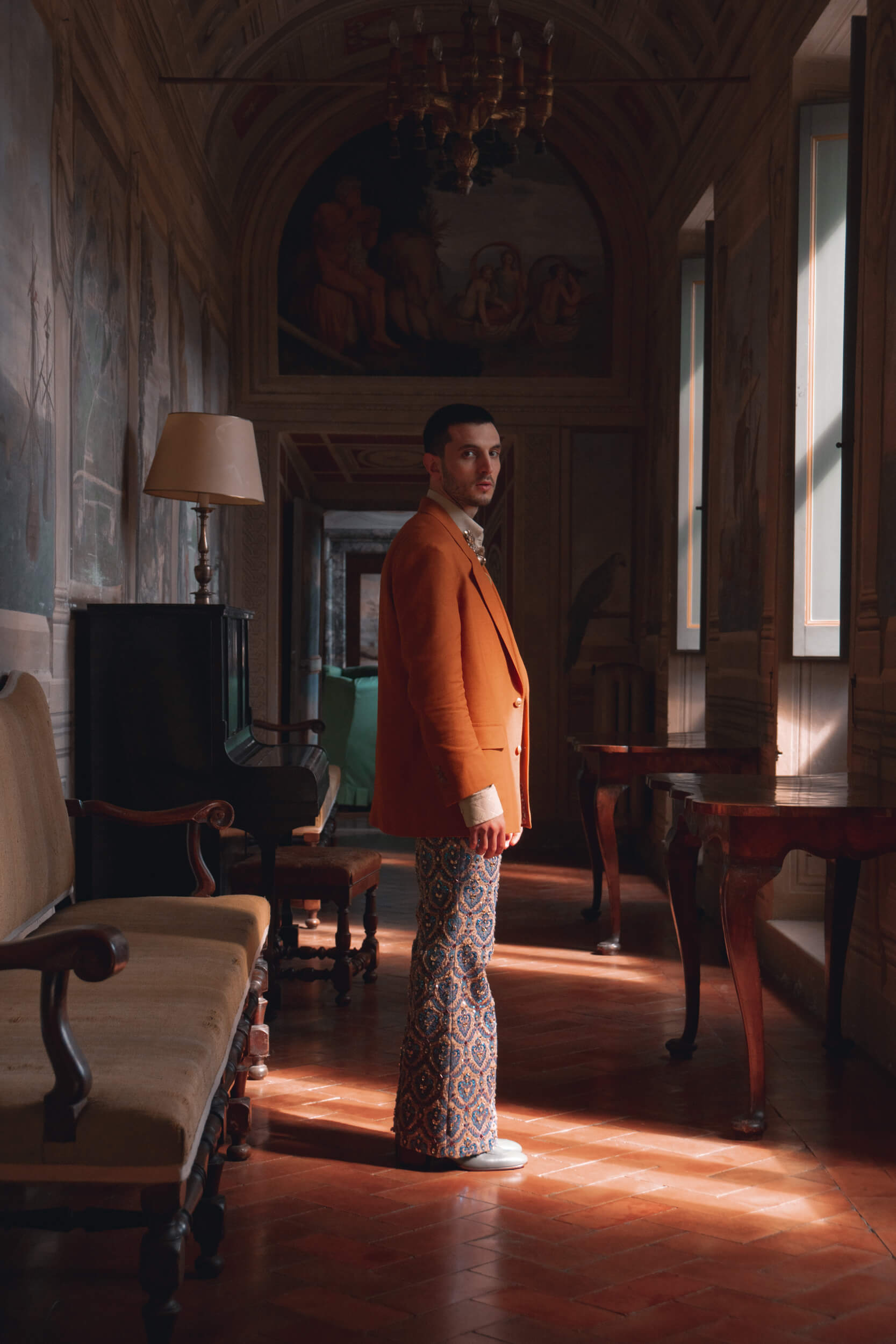
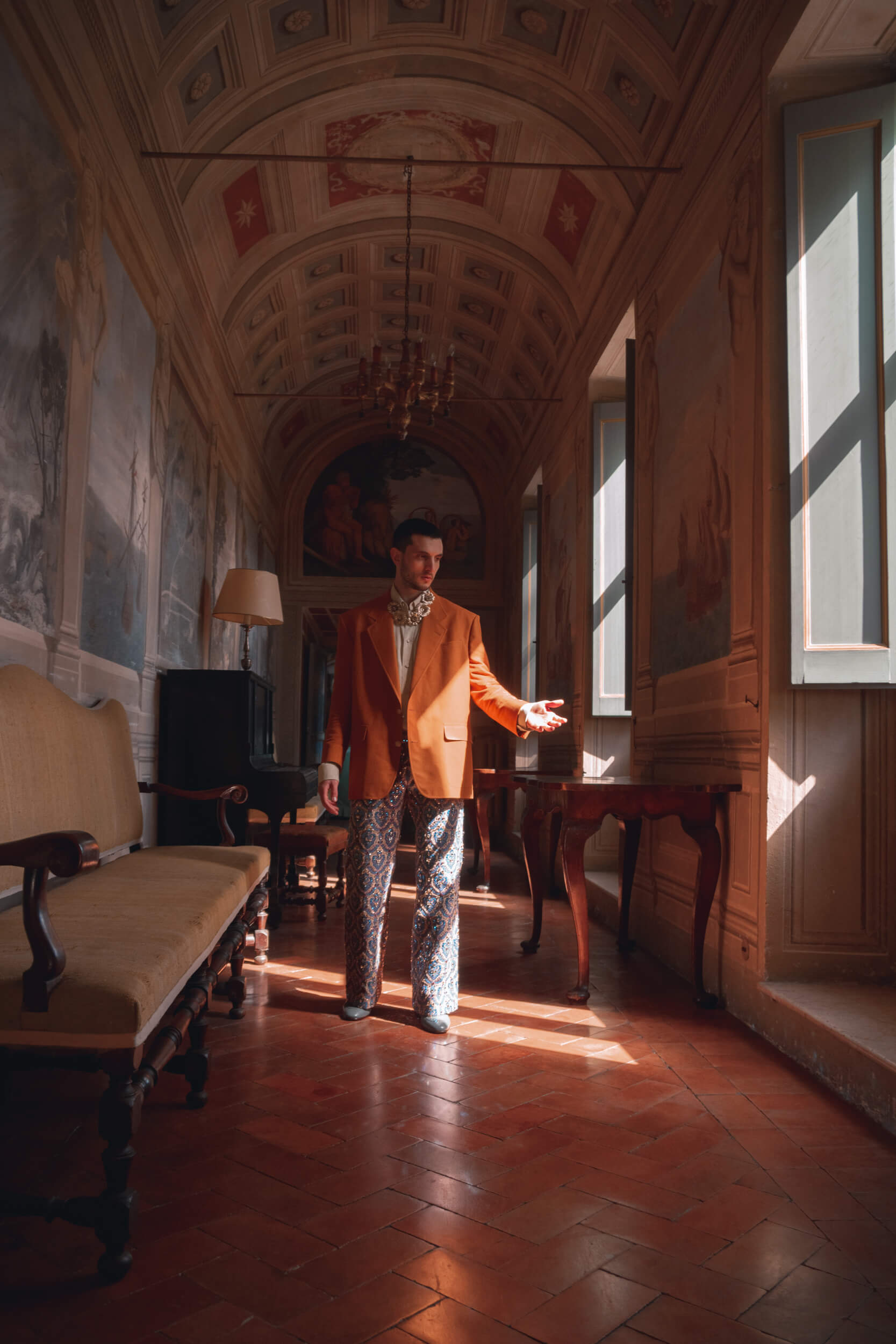
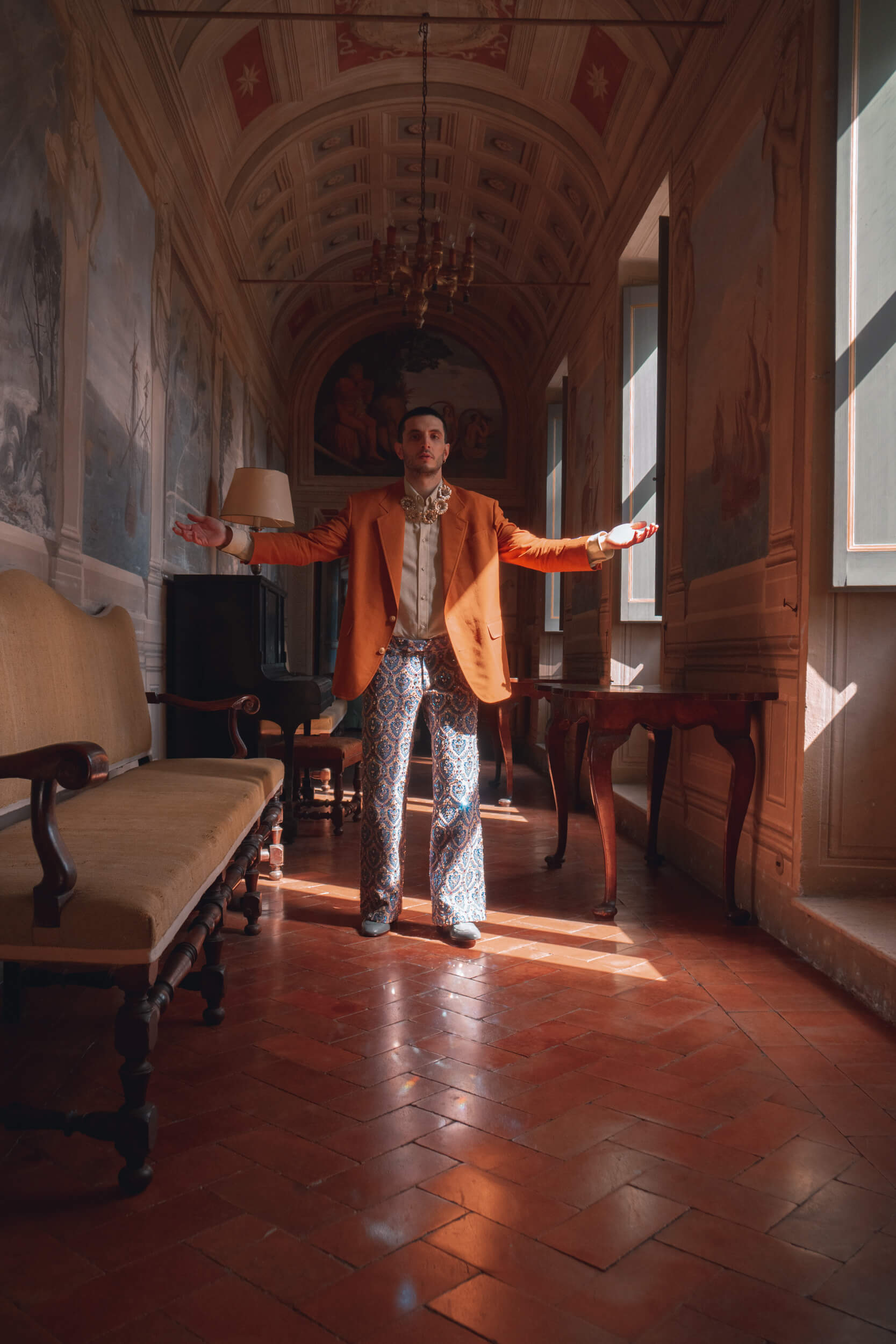
“…I always want to improve, nothing is ever enough, in fact, I’d really need a vacation and just some peace and quiet.”
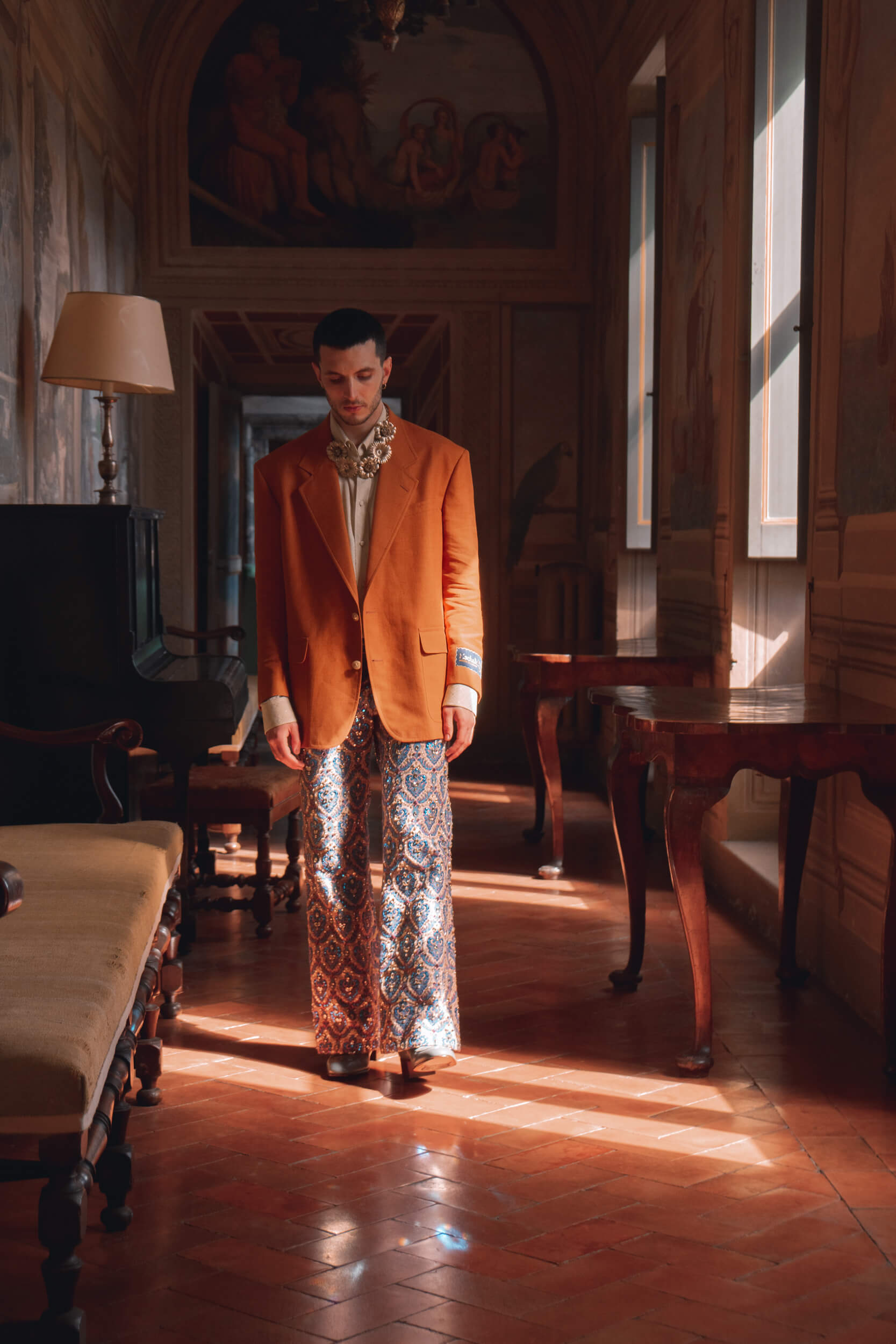
Speaking of fear, which you’ve just mentioned, what scares you the most?
Eh… you’ll never know! [laughs] I could tell you some trivial fear of mine, but it wouldn’t be the real one.
What about the “bravest” thing you’ve done in your life, so far? It could be the decision to escape, as you said, and do this job… or something else.
I’d say the first time I went on stage, and I was about 6 or 8.
Then, every time I try to make art because, with no courage, it would be something poor, if you don’t do something that scares you a lot, it means that you’re not doing it right and, above all, it won’t leave anything to anybody. If you do something ordinary, that you don’t feel like a limit to surpass, it will never have the same relevance that another act of art would have. It takes courage to make art.
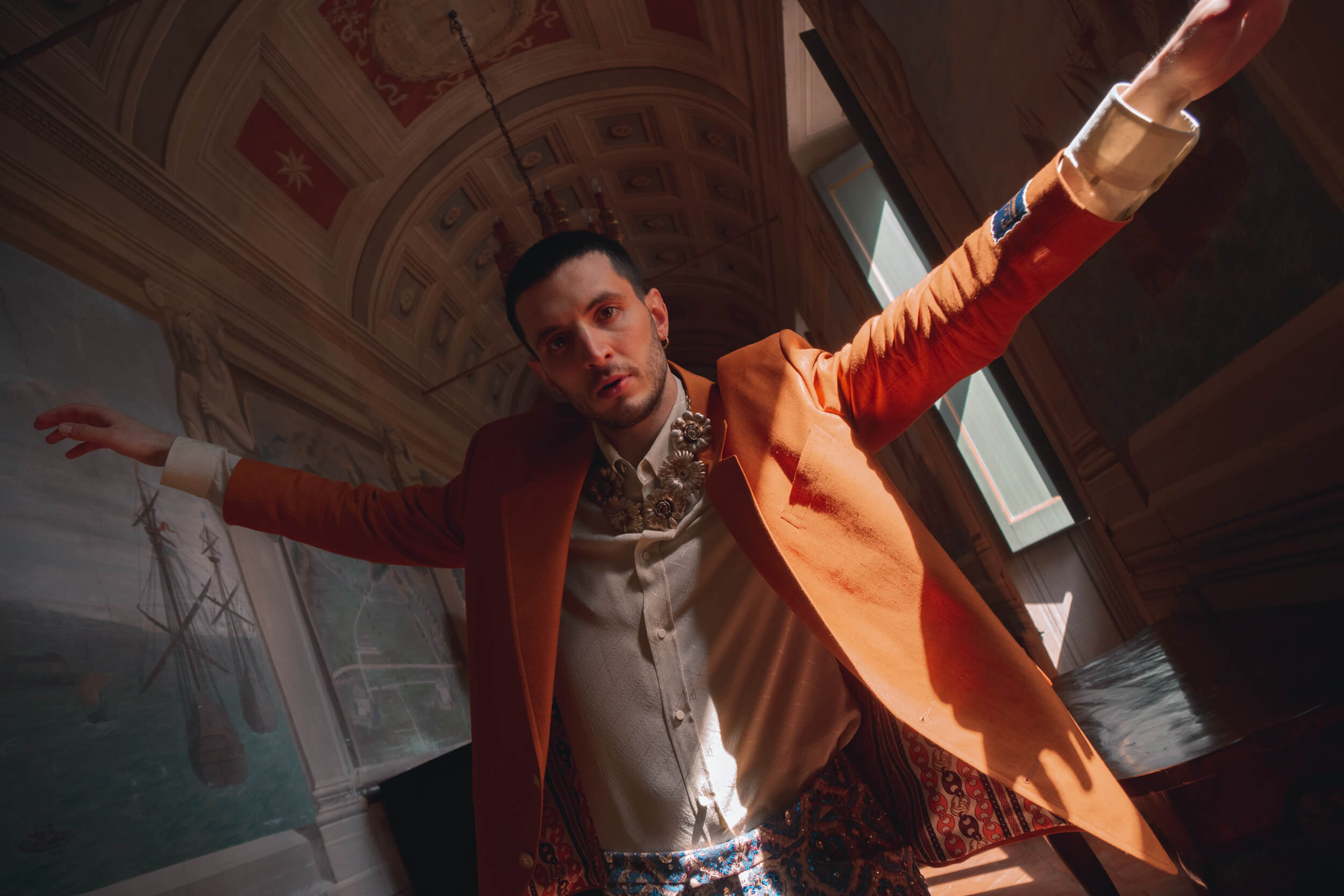
“If you do something ordinary, that you don’t feel like a limit to surpass, it will never have the same relevance that another act of art would have. It takes courage to make art.”
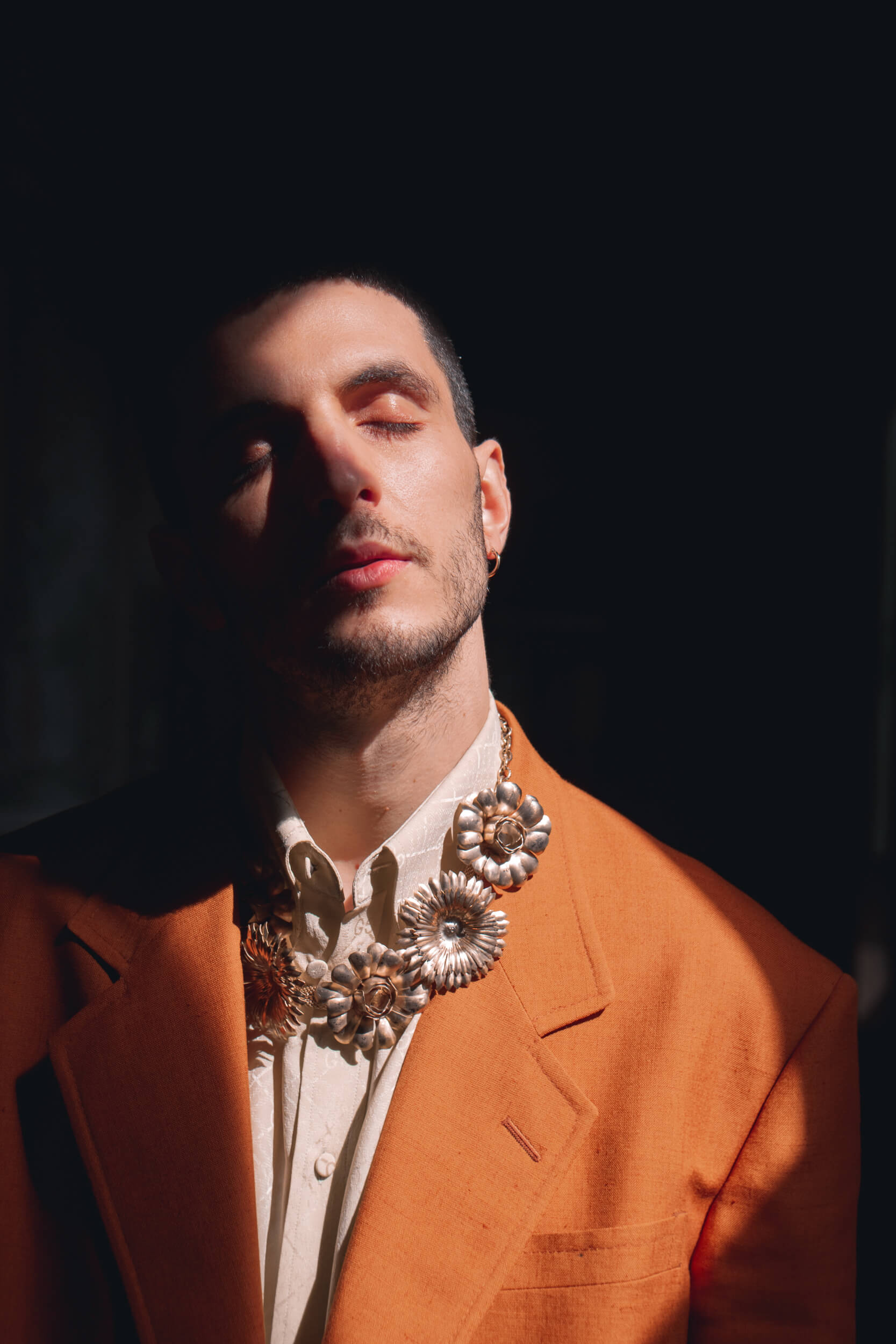
I’m curious: do you ever write anything of yours?
I have a journal, where I write certain points I reach over my career that I feel essential, important. This is something I do thanks to my acting coach, I’ve had a logbook since 2012, so I know exactly what I used to think in a specific moment of my career, of my life, always on an artistic level, never personal. This journal is where I write about my acting situation, my needs, my feelings in a specific moment, in the good and bad times because in any moment of my life I could, maybe, feel the need to re-read something to understand how I overcame it, or because it could be somehow useful. It’s essential for me, at that moment, to write it down, I don’t want to say to put a period to that moment, but to take a picture of it. It could turn useful at any time because I could lose the joy of doing this job, while in this way I could go back to reading what I used to think in 2013, for example, or in 2014 when I made my first movie, and understand why I was so happy, what was on my mind.
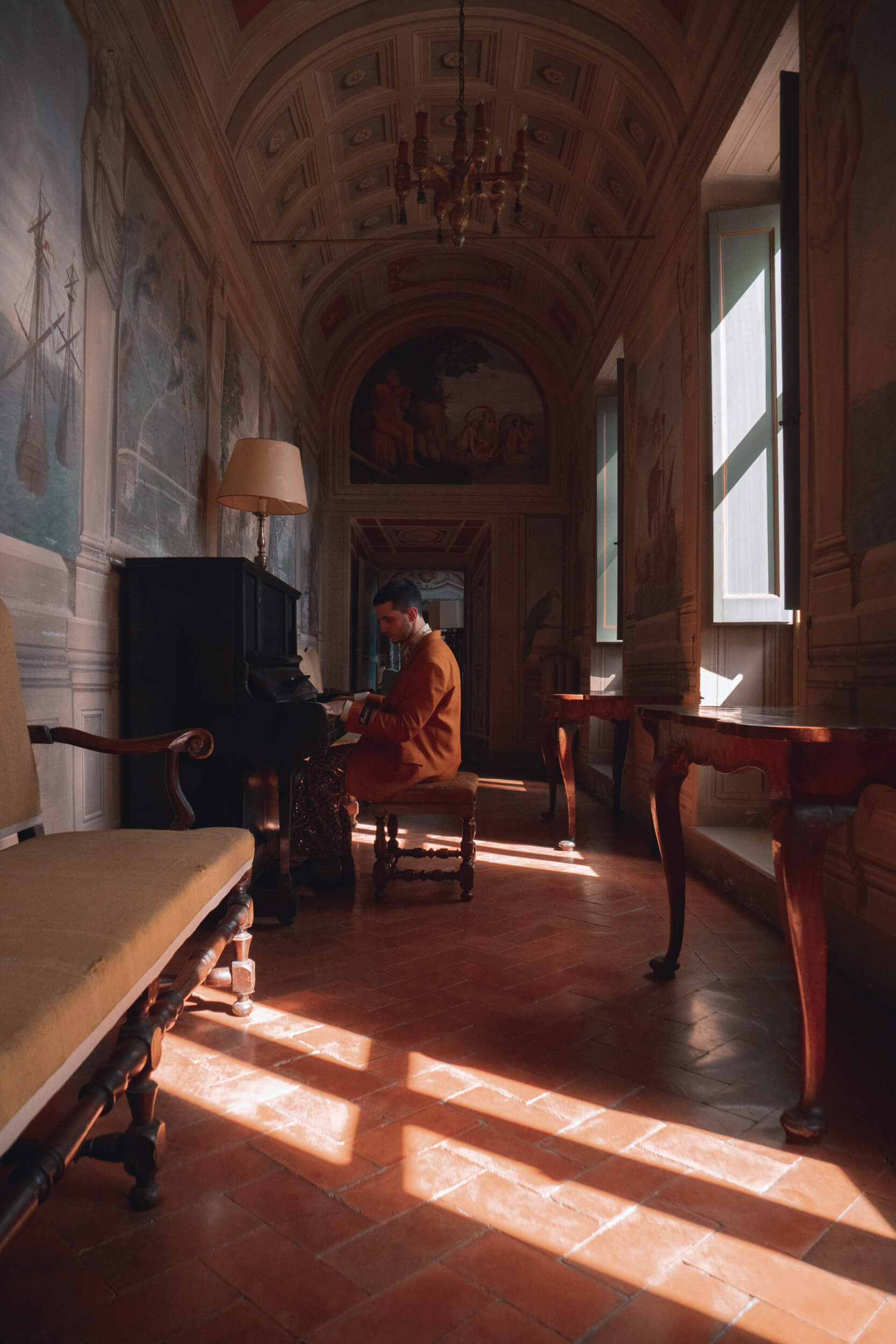
“…I’ve had a logbook since 2012, so I know exactly what I used to think in a specific moment of my career, of my life, always on an artistic level, never personal.”
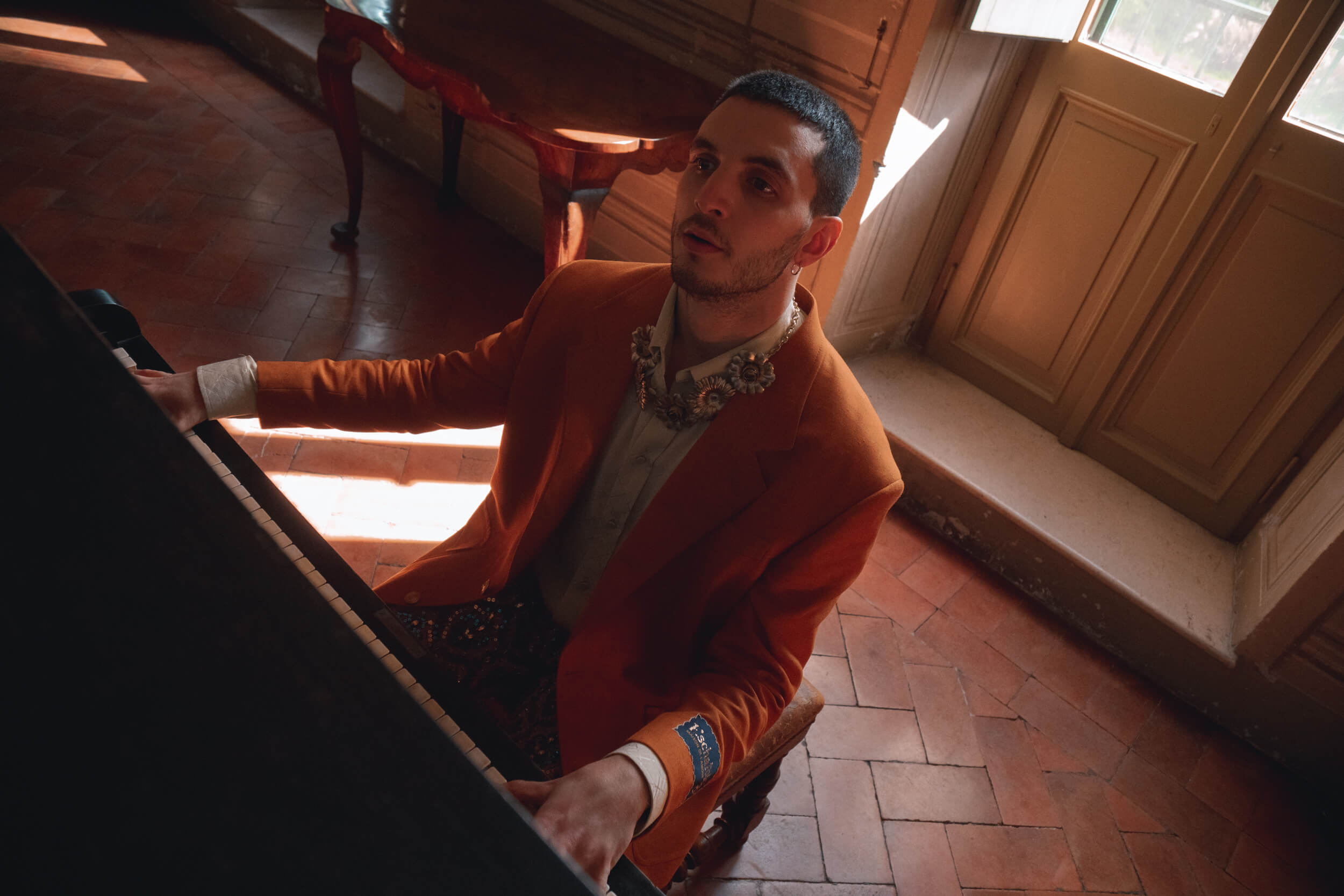
One last question, which is vital because we couldn’t but ask you this: what’s the secret for the perfect arrosticino?
Well… It’s like if I had to tell you about my fear, which I’ll never do [laughs]. The perfect arrosticino must be 100% from Abruzzo: born, cooked, and eaten in Abruzzo, or cooked by someone from Abruzzo, anyway.
It’s basically a tradition: you grow up watching your dad, your grandparents roasting arrosticini for everyone during the holidays, or for dinner, and it’s really something that creates conviviality, it’s something that brings people together, that makes them stay together, the arrosticino. Food, in general, has that power, but arrosticini above all: certain situations are created around that narrow barbecue, where you roast arrosticini, which is an intrinsic element in people from Abruzzo as human beings, as human beings from Abruzzo, because it’s tradition, you watch your dad and see how he cooks them. The meat has to be made in Abruzzo, of course, and roasted by someone who’s already done it at least a couple of times in their life.
I’m thinking of starting this business where I go to people’s houses and roast arrosticini [laughs]. It could be a thing, as this job could be very problematic at times, there are moments where you work a lot and moments where you work less, in those moments I could consider starting this business where I come in, take care of everything, cook arrosticini and here we go.
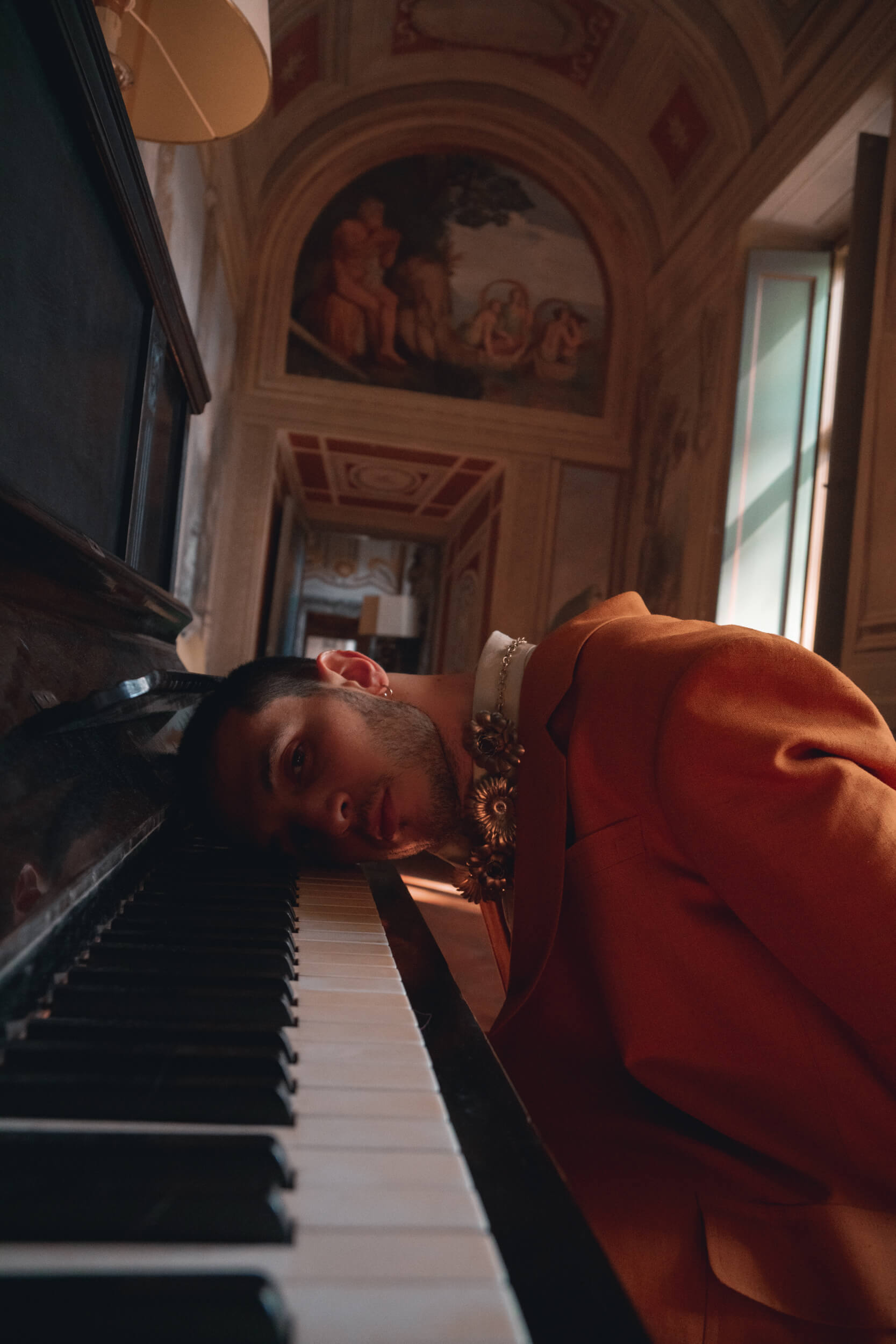
Photo & Video by Johnny Carrano.
Grooming by Chantal Ciaffardini.
Location Manager Luisa Berio.
Location Castello di Torre in Pietra.
LOOK 1
Total Look: Valentino
LOOK 2 and 3
Total Looks: Gucci

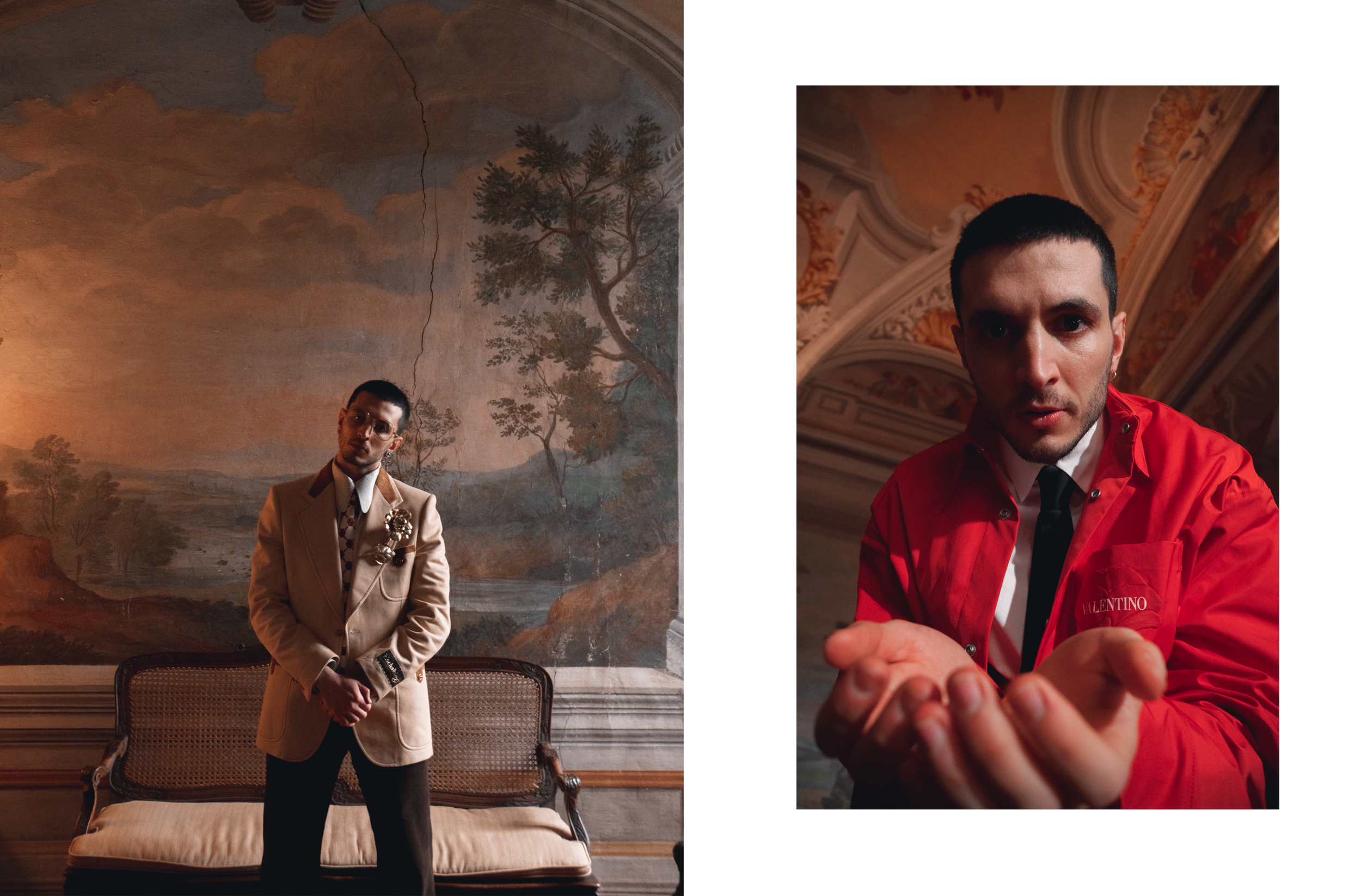




I just finished Suburra and, while all of the acting was superb, Giacomo Ferrara was unsurpassed. I was moved by his performance. Thank you for interviewing him.
Thank you Susan for your kind words, and we couldn’t agree more with you 🙂